
by Ria Olivier | Jul 25, 2020 | Antarctica, Research, SANAP, SANAP Student, SCAR
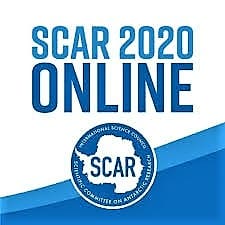 SCAR2020 Online starts on Monday 27th July with related events, with the conference starting on Monday 3rd August till 7th August with an APECS workshop from 11-13 August2020.
SCAR2020 Online starts on Monday 27th July with related events, with the conference starting on Monday 3rd August till 7th August with an APECS workshop from 11-13 August2020.
“ SCAR’s Open Science Conferences have been a focal point for the Antarctic research community for over fifteen years. Through SCAR 2020 Online we are excited to present many of the highlights of the science we had originally planned to bring to you at the Hobart OSC, which was sadly cancelled due to the COVID-19 pandemic.”
SCAR2020 online include Plenary Events, Workshops, Mini-Symposia and Related events
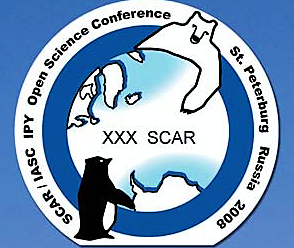




 South Africa has been part of SCAR since 1959 and over the years researchers of South Africa attended these conferences. Over the past decades, principal investigators of SANAP and their students gave oral and poster presentations. This year the XXXVI SCAR was scheduled to be held in Hobart, Tasmania, Australia from 31 July to 11 August 2020. A big group of South Africans were going to attend this meeting. Scientists, researchers and students submitted abstracts for the conference, although not all of these will be orally presented (some will be available on virtual display). All the abstracts have been compiled in a book of abstracts.
South Africa has been part of SCAR since 1959 and over the years researchers of South Africa attended these conferences. Over the past decades, principal investigators of SANAP and their students gave oral and poster presentations. This year the XXXVI SCAR was scheduled to be held in Hobart, Tasmania, Australia from 31 July to 11 August 2020. A big group of South Africans were going to attend this meeting. Scientists, researchers and students submitted abstracts for the conference, although not all of these will be orally presented (some will be available on virtual display). All the abstracts have been compiled in a book of abstracts.
| SCAR2020 Online – Related Events (UTC time) |
| Monday, 27 July 2020 |
| * |
0600-0800 |
Session 25 |
Sea ice in the atmosphere-ice-ocean-biosphere system |
| * |
0930-1130 |
Session 36 |
Antarctic Heritage |
| * |
1100-1300 |
Session 25 |
Sea ice in the atmosphere-ice-ocean-biosphere system |
| * |
1200-1530 |
Session 36 |
Environmental factors driving diversity and composi on of fossil and living Antarctic communities |
| Tuesday, 28 July 2020 |
| |
1300-1600 |
Meeting |
SOOS West Antarctic Peninsula and Scotia Arc Regional Working Group Committee meeting |
| * |
1300-1500 |
Session 41 |
Living and Working in Antarctica, Session A |
| |
1400-1600 |
Workshop |
Biogeochemical Argo Workshop |
| |
1800-2230 |
Session 5 |
Antarctic Sea ice variability and change |
| * |
2000-2200 |
Session 41 |
Living and Working in Antarc ca, Session B |
| Wednesday, 29 July 2020 |
| |
0500-0800 |
Session 46 |
Public Engagements with Antarc ca in a Changing Climate |
| |
1200-1400 |
Session 36 |
Environmental factors driving diversity and composi on of fossil and living Antarctic communi es – Session 2 |
| Thursday, 30 July 2020 |
| |
0900-1100 |
Session 45 |
Inclusive Collaborations in Antarctic Research |
| |
1800-2200 |
Workshop |
ASPeCt* Workshop |
| |
2000-2130 |
Meeting |
Geothermal Heat Flow Side Meeting |
| Friday, 31 July 2020 |
| |
0600-0800 |
Session 37 |
The ATS, Interna onal Law and Governance, Session 2 |
| |
1300-1500 |
Session 37 |
The ATS, Interna onal Law and Governance, Session 2 |
Above schedule for 27th -31st July. “The full program will be uploaded in coming days on the SCAR2020 website. Please note that session start and end times may change slightly in the final program to allow for smooth transition between sessions.” See schedule with an indication(*) of where South Africans will be participating – the schedule will change over the next two weeks, follow us on Twitter (@Antarcticlegacy) and FaceBook to keep track of changes. Below this week schedule.
All the best to all our presenters during SCAR2020 Online!!

by Ria Olivier | Jul 19, 2020 | Fellowship, Research, SA Agulhas II, SANAP, Science, SEAmester, Southern Ocean

 The SEAmester programme is a marine science winter school founded by Prof. Isabelle Ansorge of UCT which takes place at sea and provides the perfect platform for coupling both academic research and learning. Every year approximately 100 students, lecturers and scientists from over 15 different institutions (both local and international) come together for approximately 10 days at sea onboard the SA Agulhas II. SEAmester exposes postgraduate students to multiple different marine science disciplines through daily lectures, practicals, and regular interaction with many professionals conducting their research onboard South Africa’s state of the art research vessel.
The SEAmester programme is a marine science winter school founded by Prof. Isabelle Ansorge of UCT which takes place at sea and provides the perfect platform for coupling both academic research and learning. Every year approximately 100 students, lecturers and scientists from over 15 different institutions (both local and international) come together for approximately 10 days at sea onboard the SA Agulhas II. SEAmester exposes postgraduate students to multiple different marine science disciplines through daily lectures, practicals, and regular interaction with many professionals conducting their research onboard South Africa’s state of the art research vessel.
 3 of the 4 previous SEAmester cruises have sampled the Agulhas System Climate Array (ASCA) transect. ASCA was an array of moorings deployed across the Agulhas Current from April 2016 to May 2018, in order to better understand the physical properties and dynamics of the Agulhas Current. The ASCA project extended the research undertaken along this array during the Agulhas Current Time-series project by continuing to sample the same 20 hydrographic stations. In-situ data in the Agulhas Current is very rare, and the collaborative, multi-disciplinary approach adopted during SEAmester has greatly improved our understanding of the complex Agulhas Current System. More information in paper by Morris et al., 2017 Above: Location of the stations sampled during SEAmester. Figure by James Maitland.
3 of the 4 previous SEAmester cruises have sampled the Agulhas System Climate Array (ASCA) transect. ASCA was an array of moorings deployed across the Agulhas Current from April 2016 to May 2018, in order to better understand the physical properties and dynamics of the Agulhas Current. The ASCA project extended the research undertaken along this array during the Agulhas Current Time-series project by continuing to sample the same 20 hydrographic stations. In-situ data in the Agulhas Current is very rare, and the collaborative, multi-disciplinary approach adopted during SEAmester has greatly improved our understanding of the complex Agulhas Current System. More information in paper by Morris et al., 2017 Above: Location of the stations sampled during SEAmester. Figure by James Maitland.
 Left: Last year during SEAmester IV we experienced 3 consecutive cold fronts with resulting waves of up to 10m in size. This rough weather meant we were only able to sample 16 out of 20 of our planned stations. Photo credit: Thando Mazomba
Left: Last year during SEAmester IV we experienced 3 consecutive cold fronts with resulting waves of up to 10m in size. This rough weather meant we were only able to sample 16 out of 20 of our planned stations. Photo credit: Thando Mazomba
Sampling during SEAmester IV has included physical oceanography, biogeochemistry, phytoplankton, zooplankton, ichthyoplankton, microplastics, marine parasites, marine bacteria, marine seabirds and mammals, meteorology, benthic dredge sampling and more. SEAmester has provided an incredible opportunity for scientists from different disciples to work together and at the same time providing students with invaluable seagoing experience. The 5th SEAmester cruise which was due to take place this week has unfortunately been postponed until next year due to COVID-19.
 SEAmester has changed the lives of students! “Department of Science and Innovation’s 10-year Global Change Grand Challenge programme requires platforms to ‘attract young researchers and retain them by exciting their interest in aspects of global change; while developing their capacity and professional skills in the relevant fields of investigation.” – Isabelle Ansorge
SEAmester has changed the lives of students! “Department of Science and Innovation’s 10-year Global Change Grand Challenge programme requires platforms to ‘attract young researchers and retain them by exciting their interest in aspects of global change; while developing their capacity and professional skills in the relevant fields of investigation.” – Isabelle Ansorge
- “This programme has been the best experience in my life. It changed my outlook on how to gather knowledge, where to do research, how to think logically as well as to be creative and intuitive”
- “I have made so many new friends and build up my contacts for future endeavours”
- “SEAmester has made me realise that I have a passion for ocean-based research”
- “It has greatly influenced my general career goals and aims”
- “I really enjoyed meeting so many people from a diverse range of backgrounds and sciences”
- “I loved the way the content of SEAmester has helped me to link up all the theory that I have learnt over the years”
- “SEAmester was the best experience of my life”
- “I hope that SEAmester will continue in years so other students get the chance to have such an awesome experience”
- “I have been changed positively by this course – I am more motivated to tackle my studies”
- Just being together as a team – it didn’t matter what your background was”
- “It was a time of my life that I will never ever forget”

 Text Supplied by Laura Braby – SAEON- Egagasini Node. Student Comments supplied by Isabelle Ansorge. Images available on Antarctic Legacy of South Africa Archive. More videos and images available at www.seamester.co.za
Text Supplied by Laura Braby – SAEON- Egagasini Node. Student Comments supplied by Isabelle Ansorge. Images available on Antarctic Legacy of South Africa Archive. More videos and images available at www.seamester.co.za

by Ria Olivier | Jul 17, 2020 | Antarctica, SANAE, SANAP, Science, SEAmester
 Stephen involvement in SANAP started back in 2016 when he was a student at UCT. He was working towards his Honours degree in Environmental Management when he came across the SEAmester programme and the opportunity to go to sea. “I applied and successfully made it into the programme. This was a huge moment as Antarctica and the South Africa’s prized research vessel, the SA Agulhas II, have always fascinated me. I loved every minute of the SEAmester programme, so much so that I spent every moment of extra time learning about all the science instruments used on the expeditions to Antarctica. Later that year I was granted the opportunity to participate in the SANAE 56 take over expedition. As expected, I did indeed fall in love with Antarctica.
Stephen involvement in SANAP started back in 2016 when he was a student at UCT. He was working towards his Honours degree in Environmental Management when he came across the SEAmester programme and the opportunity to go to sea. “I applied and successfully made it into the programme. This was a huge moment as Antarctica and the South Africa’s prized research vessel, the SA Agulhas II, have always fascinated me. I loved every minute of the SEAmester programme, so much so that I spent every moment of extra time learning about all the science instruments used on the expeditions to Antarctica. Later that year I was granted the opportunity to participate in the SANAE 56 take over expedition. As expected, I did indeed fall in love with Antarctica.


 Throughout my university career I had been very involved in home-brewing and the brewing industry. I was virtually brewing as much as I was studying and started a nano brewery in the back of a local Cape Town pub. I would bounce between classes and the brewery daily spending most of my time forging relationships with bars and brewers. Before I knew it, this hobby had turned into a functioning business. I had a small range of beers that I would sell before I’d even brewed the beer. As a student, cash and cash flow are always a difficulty and this sales approach (which is very unusual) worked for my situation.
Throughout my university career I had been very involved in home-brewing and the brewing industry. I was virtually brewing as much as I was studying and started a nano brewery in the back of a local Cape Town pub. I would bounce between classes and the brewery daily spending most of my time forging relationships with bars and brewers. Before I knew it, this hobby had turned into a functioning business. I had a small range of beers that I would sell before I’d even brewed the beer. As a student, cash and cash flow are always a difficulty and this sales approach (which is very unusual) worked for my situation.


 The SANAE 56 take over expedition was an experience that changed my life for the better. I learnt the importance of science and exploration as a fundamental duty to better protect our planet. I was amazed by the commitment of the scientists and researchers involved in ocean and Antarctic studies. It was also on this expedition that I read and learnt about the great Sir Ernest Shackleton, whose unrivaled story of leadership, exploration and survival had an impact on me. So much so that upon returning from Antarctica I decided to name our brewery Shackleton Brewing Company. Our goal as a brand is to inspire people through Shackleton’s endeavor and acknowledge the value of research in ocean and Antarctic studies. This has always been a focus on the brand and translating this through our products.
The SANAE 56 take over expedition was an experience that changed my life for the better. I learnt the importance of science and exploration as a fundamental duty to better protect our planet. I was amazed by the commitment of the scientists and researchers involved in ocean and Antarctic studies. It was also on this expedition that I read and learnt about the great Sir Ernest Shackleton, whose unrivaled story of leadership, exploration and survival had an impact on me. So much so that upon returning from Antarctica I decided to name our brewery Shackleton Brewing Company. Our goal as a brand is to inspire people through Shackleton’s endeavor and acknowledge the value of research in ocean and Antarctic studies. This has always been a focus on the brand and translating this through our products.

 My biggest life decision came after the SANAE 56 take over expedition. I had to choose whether to continue my studies or work in the field that I had studied or to pursue the brewing business. At the time the business did not feel like a sustainable option, but I saw it as an experience that I could learn from. It all fell into place when I secured an investor that funded a proposal, I put forward to purchase a brewery from the UK. Signed, sealed and my brewing path had been decided. I spent two months in the UK packing up a brewery into a container to send back to Cape Town. The equipment was in perfect condition when it landed after a long cruise from Bristol port. Over the next few years, the business grew, and the brand has become established in the brewing industry.
My biggest life decision came after the SANAE 56 take over expedition. I had to choose whether to continue my studies or work in the field that I had studied or to pursue the brewing business. At the time the business did not feel like a sustainable option, but I saw it as an experience that I could learn from. It all fell into place when I secured an investor that funded a proposal, I put forward to purchase a brewery from the UK. Signed, sealed and my brewing path had been decided. I spent two months in the UK packing up a brewery into a container to send back to Cape Town. The equipment was in perfect condition when it landed after a long cruise from Bristol port. Over the next few years, the business grew, and the brand has become established in the brewing industry.

 It had always been a goal to collaborate with Univeristy of Cape Town and the Oceanography department, which has given me so much. Our idea came into fruition as we set out to celebrate science and sustainability in the form of a beer. Using the discarded Antarctic sea ice cores as the primary ingredient (water), we made a beer that embodied the message of science and sustainability. The beer used organic malt, sensibly harvested hops and packaged in a handmade wooden box with the story about the project. We partnered with institutions and organisations who played an important role in making this product possible. Shackleton has committed 10% of all the beer sales to be donated to the SEAmester programme in the hopes of funding 1 extra student to have the experience I did. It was a brilliant launch night with Antarctic Legacy of South Africa (a partner in the project) displaying books, info packs etc for the guests to read. Many people don’t know the value of the research done in Antarctica and this night was an experience that educated and celebrated science to our beer community.
It had always been a goal to collaborate with Univeristy of Cape Town and the Oceanography department, which has given me so much. Our idea came into fruition as we set out to celebrate science and sustainability in the form of a beer. Using the discarded Antarctic sea ice cores as the primary ingredient (water), we made a beer that embodied the message of science and sustainability. The beer used organic malt, sensibly harvested hops and packaged in a handmade wooden box with the story about the project. We partnered with institutions and organisations who played an important role in making this product possible. Shackleton has committed 10% of all the beer sales to be donated to the SEAmester programme in the hopes of funding 1 extra student to have the experience I did. It was a brilliant launch night with Antarctic Legacy of South Africa (a partner in the project) displaying books, info packs etc for the guests to read. Many people don’t know the value of the research done in Antarctica and this night was an experience that educated and celebrated science to our beer community.



 Why you love your career in science?I have a huge obsession with business and the many ways to make success out of it. That said, it’s incredibly difficult to actually succeed. Where I feel my true expertise, lie is in the science of brewing. I love the care and attention to all variables that create the outcome. Small slip ups in brewing have exponential knock on effects in the end product. There is science in controlling these variables to consistently producing the same product. There is a saying which I really appreciate – “brewing beer is a science but brewing great beer is an art”. I believe if you can marry the two, you’ll have success in the quality of the product.
Why you love your career in science?I have a huge obsession with business and the many ways to make success out of it. That said, it’s incredibly difficult to actually succeed. Where I feel my true expertise, lie is in the science of brewing. I love the care and attention to all variables that create the outcome. Small slip ups in brewing have exponential knock on effects in the end product. There is science in controlling these variables to consistently producing the same product. There is a saying which I really appreciate – “brewing beer is a science but brewing great beer is an art”. I believe if you can marry the two, you’ll have success in the quality of the product.


 My message to future scientists and researchers: “I believe that science and exploration is a noble pursuit but undoubtedly a rewarding one. It is also our duty to better understand the world and how best to preserve nature its beauty. There is also infinite amount of problems to solve and hypothesize to prove. By becoming a scientist, I believe you are an explorer with intrigue and wonder. I have had the privilege of working with ground-breaking scientists and researchers who have dedicated their life contributing to our collective knowledge about the world.”
My message to future scientists and researchers: “I believe that science and exploration is a noble pursuit but undoubtedly a rewarding one. It is also our duty to better understand the world and how best to preserve nature its beauty. There is also infinite amount of problems to solve and hypothesize to prove. By becoming a scientist, I believe you are an explorer with intrigue and wonder. I have had the privilege of working with ground-breaking scientists and researchers who have dedicated their life contributing to our collective knowledge about the world.”
Images: Herman Luyt, Stephen Peel, Antarctic Legacy of South Africa. Text by Stephen Peel.

by Ria Olivier | Jul 15, 2020 | Discover, Research, SA Agulhas II, SANAP, Science, SEAmester, Southern Ocean, STEM, Women in Science



 Isabelle as a child always wanted to be an oceanographer. “When I was 13 my father sent me off for 6 months on a Tall Ship to sail around Africa. And so, having grown up on sailing ships and sailing the world at a very young age it seemed only natural to follow in my passion to build a career around the sea.
Isabelle as a child always wanted to be an oceanographer. “When I was 13 my father sent me off for 6 months on a Tall Ship to sail around Africa. And so, having grown up on sailing ships and sailing the world at a very young age it seemed only natural to follow in my passion to build a career around the sea.


 I first studied at Plymouth University in the UK, where I completed a BSc in Ocean Sciences in 1992. I came to South Africa in 1993 and under the mentorship of Professor Lutjeharms in the Oceanography Department at UCT I started to turn this passion into a sea-going academic career.
I first studied at Plymouth University in the UK, where I completed a BSc in Ocean Sciences in 1992. I came to South Africa in 1993 and under the mentorship of Professor Lutjeharms in the Oceanography Department at UCT I started to turn this passion into a sea-going academic career.


 One of my first jobs at UCT was to gain seagoing experience in working with all ship-based equipment. I loved being at sea and felt that after my many experiences on both national and international research vessels that I would be good at teaching practical oceanography. And so began a long period of sea-going adventures between 1996 and 2016 in which UCT Honours students were taken to sea onboard the old SA Agulhas I and from 2012 the new SA Agulhas II. The training was always part of the 5 week Prince Edward Island relief voyage and in those days students had to work the winches, drive the CTD software, work up the data for mini-projects!
One of my first jobs at UCT was to gain seagoing experience in working with all ship-based equipment. I loved being at sea and felt that after my many experiences on both national and international research vessels that I would be good at teaching practical oceanography. And so began a long period of sea-going adventures between 1996 and 2016 in which UCT Honours students were taken to sea onboard the old SA Agulhas I and from 2012 the new SA Agulhas II. The training was always part of the 5 week Prince Edward Island relief voyage and in those days students had to work the winches, drive the CTD software, work up the data for mini-projects!

 Isabelle’s Working Life: “I was employed as a lecturer at UCT in 2006 and have worked hard to build a career both nationally and internationally in observational oceanography. My passion and love for the sea can be seen in the many opportunities that I create for students both at UCT, and as can be seen from the SEAmester Floating University across the entire country. I was the first female PhD graduate in Oceanography at UCT in 2000, I am the only female Full Professor in the Oceanography Department and the first female Head of Department in 2016. “
Isabelle’s Working Life: “I was employed as a lecturer at UCT in 2006 and have worked hard to build a career both nationally and internationally in observational oceanography. My passion and love for the sea can be seen in the many opportunities that I create for students both at UCT, and as can be seen from the SEAmester Floating University across the entire country. I was the first female PhD graduate in Oceanography at UCT in 2000, I am the only female Full Professor in the Oceanography Department and the first female Head of Department in 2016. “


 What drives me:” I love teaching students. Taking a student to sea and watching them learn and seeing their eyes light up when they first board the SA Agulhas II is extremely rewarding. Many of my former students have returned to sea either as senior researchers leading their own cohort of students, or they have built their career in marine management or moved into the academic field. It is so rewarding see young inexperienced students join a cruise and leave imbued with a new confidence and a passion for their discipline.
What drives me:” I love teaching students. Taking a student to sea and watching them learn and seeing their eyes light up when they first board the SA Agulhas II is extremely rewarding. Many of my former students have returned to sea either as senior researchers leading their own cohort of students, or they have built their career in marine management or moved into the academic field. It is so rewarding see young inexperienced students join a cruise and leave imbued with a new confidence and a passion for their discipline.
 “I am proud of the SEAmester programme and how we have been able to develop linkages with traditionally non marine universities both through their students joining as SEAmester students or their own Lecturers joining the academic programme. The state-of-the-art research vessel, SA Agulhas II, provides such an incredible teaching and research platform for this programme; its size, comfort and shipboard facilities allow groups of 46 students and 30 lecturers to productively interact over a period of 10 days as can the photo of Prof Gammon teaching students in the ship’s stairwell shows so well!.”
“I am proud of the SEAmester programme and how we have been able to develop linkages with traditionally non marine universities both through their students joining as SEAmester students or their own Lecturers joining the academic programme. The state-of-the-art research vessel, SA Agulhas II, provides such an incredible teaching and research platform for this programme; its size, comfort and shipboard facilities allow groups of 46 students and 30 lecturers to productively interact over a period of 10 days as can the photo of Prof Gammon teaching students in the ship’s stairwell shows so well!.”
 My advice to the young generation: “Four words – always take the initiative! In the UK the only sea-going opportunity I had was to work on the River Tamar outside of Plymouth! In South Africa our students go to Antarctica! But it takes you to make that difference. We have so many wonderful opportunities in South Africa and access to such incredible marine programmes and platforms but the sparkplug to get started must come from you. All academics get frustrated by students not willing to engage with their surroundings and
My advice to the young generation: “Four words – always take the initiative! In the UK the only sea-going opportunity I had was to work on the River Tamar outside of Plymouth! In South Africa our students go to Antarctica! But it takes you to make that difference. We have so many wonderful opportunities in South Africa and access to such incredible marine programmes and platforms but the sparkplug to get started must come from you. All academics get frustrated by students not willing to engage with their surroundings and  not even realise the enormous privilege it is to be on a research vessel such as the SA Agulhas II. You don’t have to be the brightest student in the class but by staying engaged, enthusiastic, interactive and dedicated to your studies you will always go much further in life. Opportunities are endless but it takes you to grab it!”
not even realise the enormous privilege it is to be on a research vessel such as the SA Agulhas II. You don’t have to be the brightest student in the class but by staying engaged, enthusiastic, interactive and dedicated to your studies you will always go much further in life. Opportunities are endless but it takes you to grab it!”
Text and Images supplied by Isabbelle Ansorge.
Visit SANAP website on Isabelle Ansorge’s current research projects within the program. Also see Sunday Science on SEAmester
https://youtu.be/0LUpdr-masA

by Ria Olivier | Jul 13, 2020 | Research, SANAP, Science, SEAmester, sub-Antarctic, Take-Over Operations
 Family hikes and visits to game reserves instilled in me a keen interest in the natural world at an early age. This led to a BSc and BSc hons in Zoology at the University of the Witwatersrand. This was followed by the first of three year-long expeditions to Marion Island. While on Marion Island I worked for the Mammal Research Institute of the University of Pretoria, as part of the Marine Mammal Programme. Trips to Marion Island were followed by several summer seasons as a field biologist on Bouvet Island, a Norwegian possession in the Southern Ocean. I subsequently worked as a fisheries biologist in Namibia before returning to Pretoria to complete my MSc on the behavioural ecology of elephant seals.
Family hikes and visits to game reserves instilled in me a keen interest in the natural world at an early age. This led to a BSc and BSc hons in Zoology at the University of the Witwatersrand. This was followed by the first of three year-long expeditions to Marion Island. While on Marion Island I worked for the Mammal Research Institute of the University of Pretoria, as part of the Marine Mammal Programme. Trips to Marion Island were followed by several summer seasons as a field biologist on Bouvet Island, a Norwegian possession in the Southern Ocean. I subsequently worked as a fisheries biologist in Namibia before returning to Pretoria to complete my MSc on the behavioural ecology of elephant seals.


 Above (l-r) : Greg(middle) to leave for Bouvet; Greg on Marion Island; Greg on Bouvet Island
Above (l-r) : Greg(middle) to leave for Bouvet; Greg on Marion Island; Greg on Bouvet Island
 I took up my current employment in 2006 as marine mammal biologist at the Port Elizabeth Museum at Bayworld. While at the PEM, I completed a PhD, also on elephant seals. I am currently curator of the marine mammal collection at the PEM, and am thus responsible for the Southern Hemisphere’s largest marine mammal collection. This comprises over 6 000 specimens of more than 50 species. It continues to grow by some 30-40 specimens per year and is used by researchers from all over the world.
I took up my current employment in 2006 as marine mammal biologist at the Port Elizabeth Museum at Bayworld. While at the PEM, I completed a PhD, also on elephant seals. I am currently curator of the marine mammal collection at the PEM, and am thus responsible for the Southern Hemisphere’s largest marine mammal collection. This comprises over 6 000 specimens of more than 50 species. It continues to grow by some 30-40 specimens per year and is used by researchers from all over the world.
Why you love your career in science?


 When I was very young I was keen to become a game ranger. While in high school this had morphed into being a zoologist. And this is the career that I was lucky enough to follow. It has given me wonderful opportunities and allowed me to do some fascinating things. I had always wanted to work in wild places and so arriving on Marion Island for the first time was like arriving in paradise. Before the end of my first year, I new that I had to return. I loved every moment on this rough place. Not only was it beautiful and challenging, but it also allowed one the opportunity to observe animals fairly closely and wonder about their way of life and behaviour. How did these very distant relatives of our survive in an environment so hostile to us? Thus it was also intellectually stimulating. And I have loved to return to wild places and ask questions about the natural work ever since.
When I was very young I was keen to become a game ranger. While in high school this had morphed into being a zoologist. And this is the career that I was lucky enough to follow. It has given me wonderful opportunities and allowed me to do some fascinating things. I had always wanted to work in wild places and so arriving on Marion Island for the first time was like arriving in paradise. Before the end of my first year, I new that I had to return. I loved every moment on this rough place. Not only was it beautiful and challenging, but it also allowed one the opportunity to observe animals fairly closely and wonder about their way of life and behaviour. How did these very distant relatives of our survive in an environment so hostile to us? Thus it was also intellectually stimulating. And I have loved to return to wild places and ask questions about the natural work ever since.

 If you want to become a scientist, do what you love. It is a tough career that requires
If you want to become a scientist, do what you love. It is a tough career that requires
many long hours and much dedication. You will only succeed in this if you are fascinated by what you are doing. Also, if you are reasonably good and enthusiastic about what you are doing, a number of opportunities should come your way. Seize each one. Then, doing science gives you a real opportunity to make a difference. While science is an unparalleled means of understanding the world, it also offers opportunities to make the world a better place, for all life in it, including humans.
Text and images supplied by Greg Hofmeyr.

by Ria Olivier | Jun 20, 2020 | Research, SANAP, SANAP Student, SCAR, Science, Southern Ocean, Uncategorised

 Luca Stirnimann received his BSc at the University of Genova (Italy) in 2013, majoring in Environmental Science. He was introduced to his first marine applications of ecology and taxonomy during a summer school spent on the Linosa Island (Mediterranean Sea) as an undergraduate, investigating invasive marine alien species. During his MSc in Genova, he could study time series and regime shifts analysis on plankton systems. After graduated summa cum laude in Marine Sciences (2015) at the University of Genova, he spent one year at the Marine Biological Association (Plymouth, UK) attending the MRes in Marine Biology, where he could continue his studies on plankton and experimenting the life as a scientific researcher.
Luca Stirnimann received his BSc at the University of Genova (Italy) in 2013, majoring in Environmental Science. He was introduced to his first marine applications of ecology and taxonomy during a summer school spent on the Linosa Island (Mediterranean Sea) as an undergraduate, investigating invasive marine alien species. During his MSc in Genova, he could study time series and regime shifts analysis on plankton systems. After graduated summa cum laude in Marine Sciences (2015) at the University of Genova, he spent one year at the Marine Biological Association (Plymouth, UK) attending the MRes in Marine Biology, where he could continue his studies on plankton and experimenting the life as a scientific researcher.



 From 2017, he is a PhD student at the University of Cape Town. He analyses the samples he collected during several expeditions to Antarctica, in order to investigate zooplankton and phytoplankton dynamics in the Southern Ocean in the context of nutrient cycling and primary production. He is comparing ecosystem dynamics in the vicinity of Subantarctic island systems with the open Southern Ocean. Luca’s project falls under the current SANAP Project: “A nitrogen cycle view of atmospheric CO2 sequestration in the Antarctic Ocean” (Principal Investigator: Dr SE Fawcett, University of Cape Town)
From 2017, he is a PhD student at the University of Cape Town. He analyses the samples he collected during several expeditions to Antarctica, in order to investigate zooplankton and phytoplankton dynamics in the Southern Ocean in the context of nutrient cycling and primary production. He is comparing ecosystem dynamics in the vicinity of Subantarctic island systems with the open Southern Ocean. Luca’s project falls under the current SANAP Project: “A nitrogen cycle view of atmospheric CO2 sequestration in the Antarctic Ocean” (Principal Investigator: Dr SE Fawcett, University of Cape Town)
Why you love your career in science?

 Earth science, in general, has always been fascinating to me and since I was little, my desire was to discover and learn new things related to our oceans.
Earth science, in general, has always been fascinating to me and since I was little, my desire was to discover and learn new things related to our oceans.
As I do love Sherlock Holmes stories, in this job I see myself as a detective that has to solve a case. In fact, any phenomenon in nature may be more or less complicated to be described or understood, but the samples and the analysis are like clues of a case and using them, it is possible to solve any scientific mystery.


 Thanks to oceanography, I can attend fantastic expeditions anywhere in the world, exploring from the icy polar seas to the warmer waters of the equator, spending weeks or even months on board of research vessels. During these trips, I always meet colleagues and extraordinary scientists that share the same interests and passions of mine, even if they are from different fields. Furthermore, coming to South Africa, I joined two great scientific communities: one is the SANAP group, where all the experts of the Antarctic systems meet all together to share their works and thoughts; and the second, the South African Association of Polar Early Career Scientists (APECSSA), which gives me the privilege to develop a South African group of scientists with the Polar Science as a common interest.
Thanks to oceanography, I can attend fantastic expeditions anywhere in the world, exploring from the icy polar seas to the warmer waters of the equator, spending weeks or even months on board of research vessels. During these trips, I always meet colleagues and extraordinary scientists that share the same interests and passions of mine, even if they are from different fields. Furthermore, coming to South Africa, I joined two great scientific communities: one is the SANAP group, where all the experts of the Antarctic systems meet all together to share their works and thoughts; and the second, the South African Association of Polar Early Career Scientists (APECSSA), which gives me the privilege to develop a South African group of scientists with the Polar Science as a common interest.

 This is a great career that stimulates you at any moment of your life, and if you are curious, motivated, and resourceful, well… this job is waiting for you.
This is a great career that stimulates you at any moment of your life, and if you are curious, motivated, and resourceful, well… this job is waiting for you.
In 2018 at POLAR2018 (SCAR/IASC Open Science Conference 2018) he was awarded with the 1st prize for the Association of Polar Early Career Scientists (APECS) Poster Awards (Sector: Africa and Middle). Poster Title: “The Island Mass Effect (IME) on carbon cycling in the plankton ecosystem around the Prince Edward Islands archipelago”.
Luca is current a committee member of APECSSA. Follow @LStirnimann and @apecssa on Twitter

 SCAR2020 Online starts on Monday 27th July with related events, with the conference starting on Monday 3rd August till 7th August with an APECS workshop from 11-13 August2020.
SCAR2020 Online starts on Monday 27th July with related events, with the conference starting on Monday 3rd August till 7th August with an APECS workshop from 11-13 August2020.

![]()
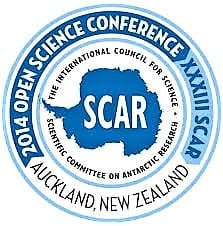
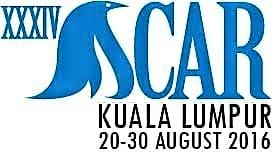
 South Africa has been part of SCAR since 1959 and over the years researchers of South Africa attended these conferences. Over the past decades, principal investigators of SANAP and their students gave oral and poster presentations. This year the XXXVI SCAR was scheduled to be held in Hobart, Tasmania, Australia from 31 July to 11 August 2020. A big group of South Africans were going to attend this meeting. Scientists, researchers and students submitted abstracts for the conference, although not all of these will be orally presented (some will be available on virtual display). All the abstracts have been compiled in a book of abstracts.
South Africa has been part of SCAR since 1959 and over the years researchers of South Africa attended these conferences. Over the past decades, principal investigators of SANAP and their students gave oral and poster presentations. This year the XXXVI SCAR was scheduled to be held in Hobart, Tasmania, Australia from 31 July to 11 August 2020. A big group of South Africans were going to attend this meeting. Scientists, researchers and students submitted abstracts for the conference, although not all of these will be orally presented (some will be available on virtual display). All the abstracts have been compiled in a book of abstracts.
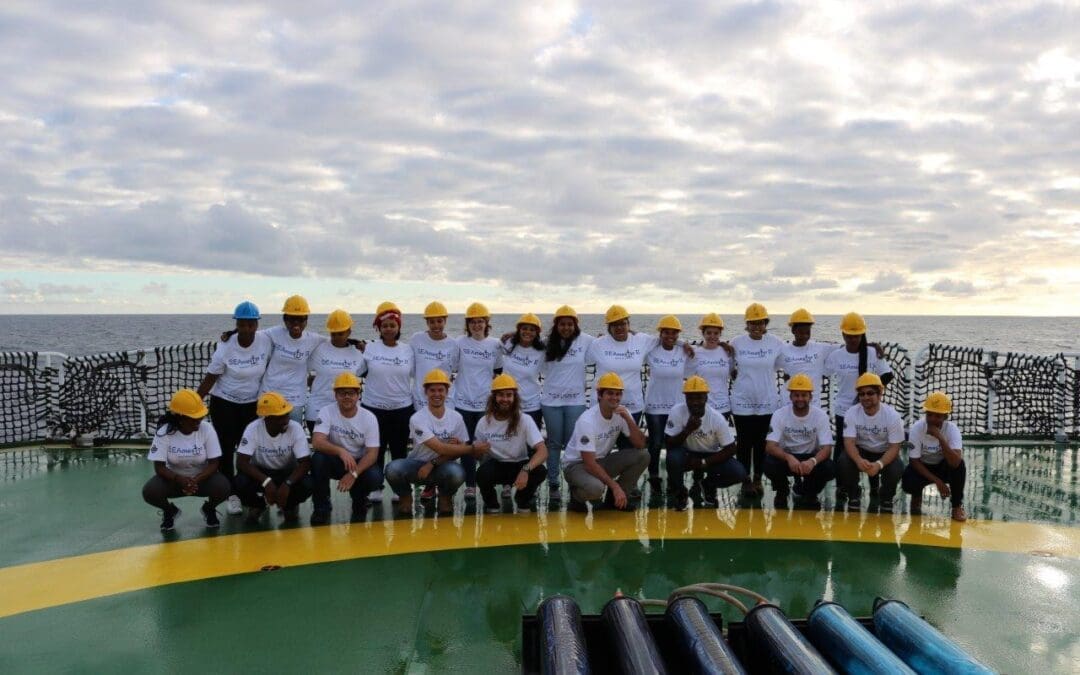
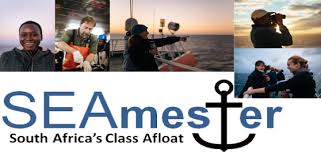

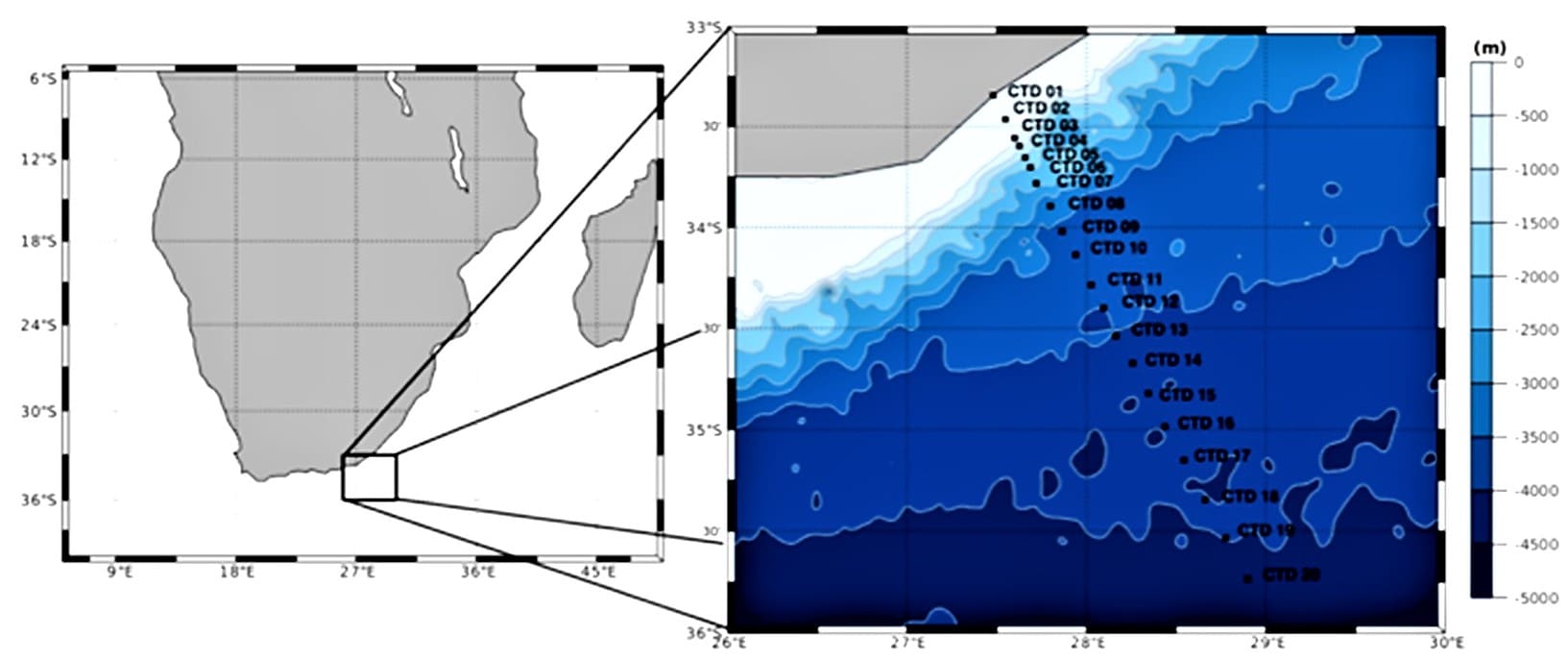 3 of the 4 previous SEAmester cruises have sampled the Agulhas System Climate Array (ASCA) transect. ASCA was an array of moorings deployed across the Agulhas Current from April 2016 to May 2018, in order to better understand the physical properties and dynamics of the Agulhas Current. The ASCA project extended the research undertaken along this array during the Agulhas Current Time-series project by continuing to sample the same 20 hydrographic stations. In-situ data in the Agulhas Current is very rare, and the collaborative, multi-disciplinary approach adopted during SEAmester has greatly improved our understanding of the complex Agulhas Current System. More information in paper by
3 of the 4 previous SEAmester cruises have sampled the Agulhas System Climate Array (ASCA) transect. ASCA was an array of moorings deployed across the Agulhas Current from April 2016 to May 2018, in order to better understand the physical properties and dynamics of the Agulhas Current. The ASCA project extended the research undertaken along this array during the Agulhas Current Time-series project by continuing to sample the same 20 hydrographic stations. In-situ data in the Agulhas Current is very rare, and the collaborative, multi-disciplinary approach adopted during SEAmester has greatly improved our understanding of the complex Agulhas Current System. More information in paper by 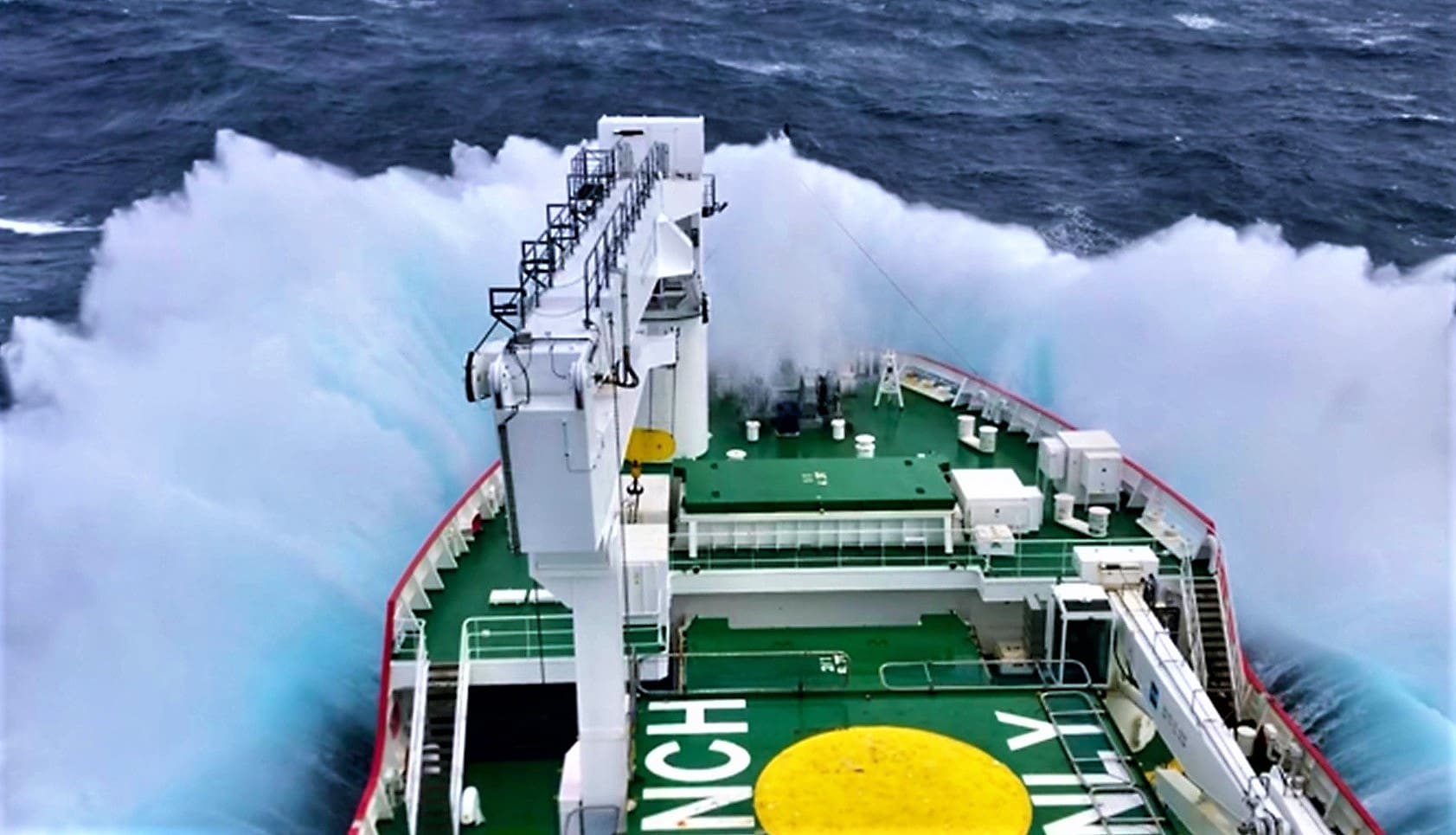 Left: Last year during SEAmester IV we experienced 3 consecutive cold fronts with resulting waves of up to 10m in size. This rough weather meant we were only able to sample 16 out of 20 of our planned stations. Photo credit: Thando Mazomba
Left: Last year during SEAmester IV we experienced 3 consecutive cold fronts with resulting waves of up to 10m in size. This rough weather meant we were only able to sample 16 out of 20 of our planned stations. Photo credit: Thando Mazomba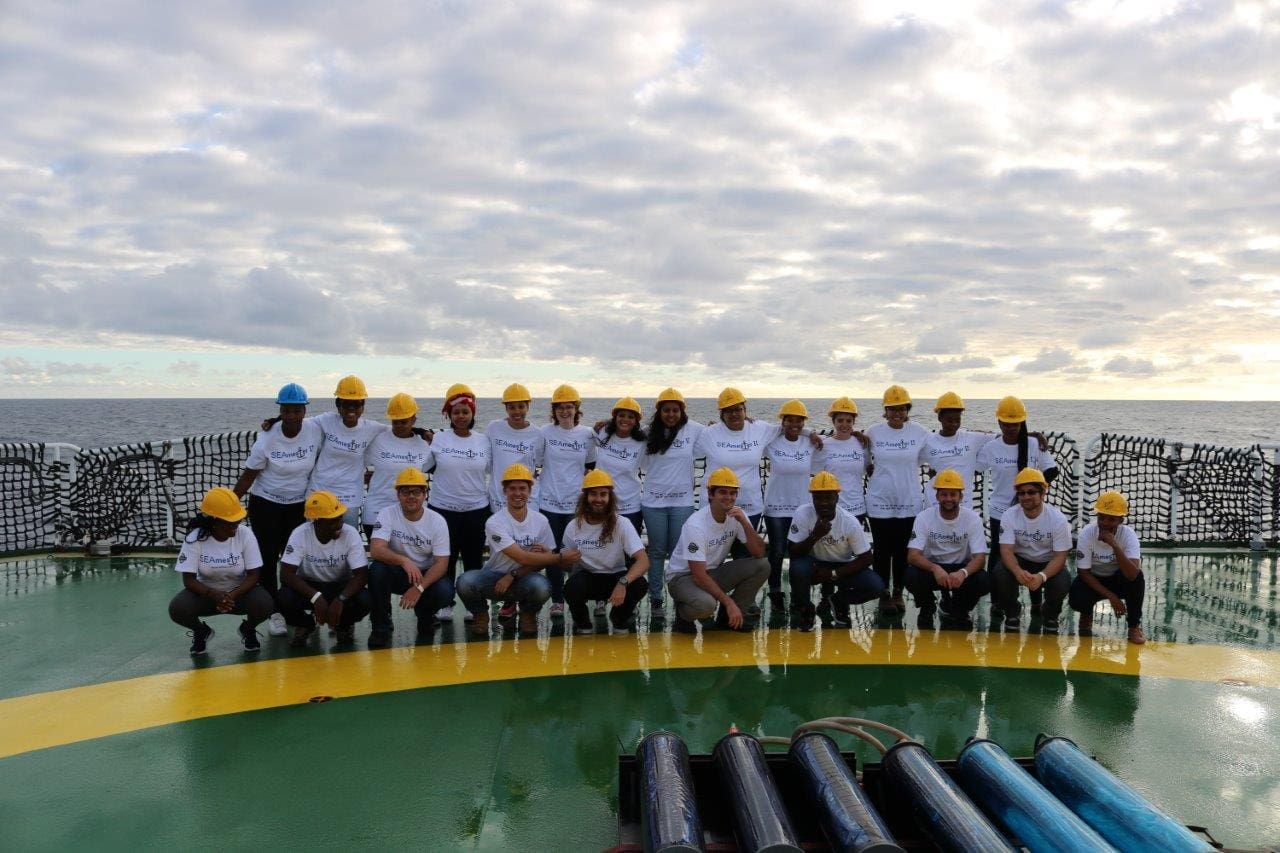 SEAmester has changed the lives of students! “
SEAmester has changed the lives of students! “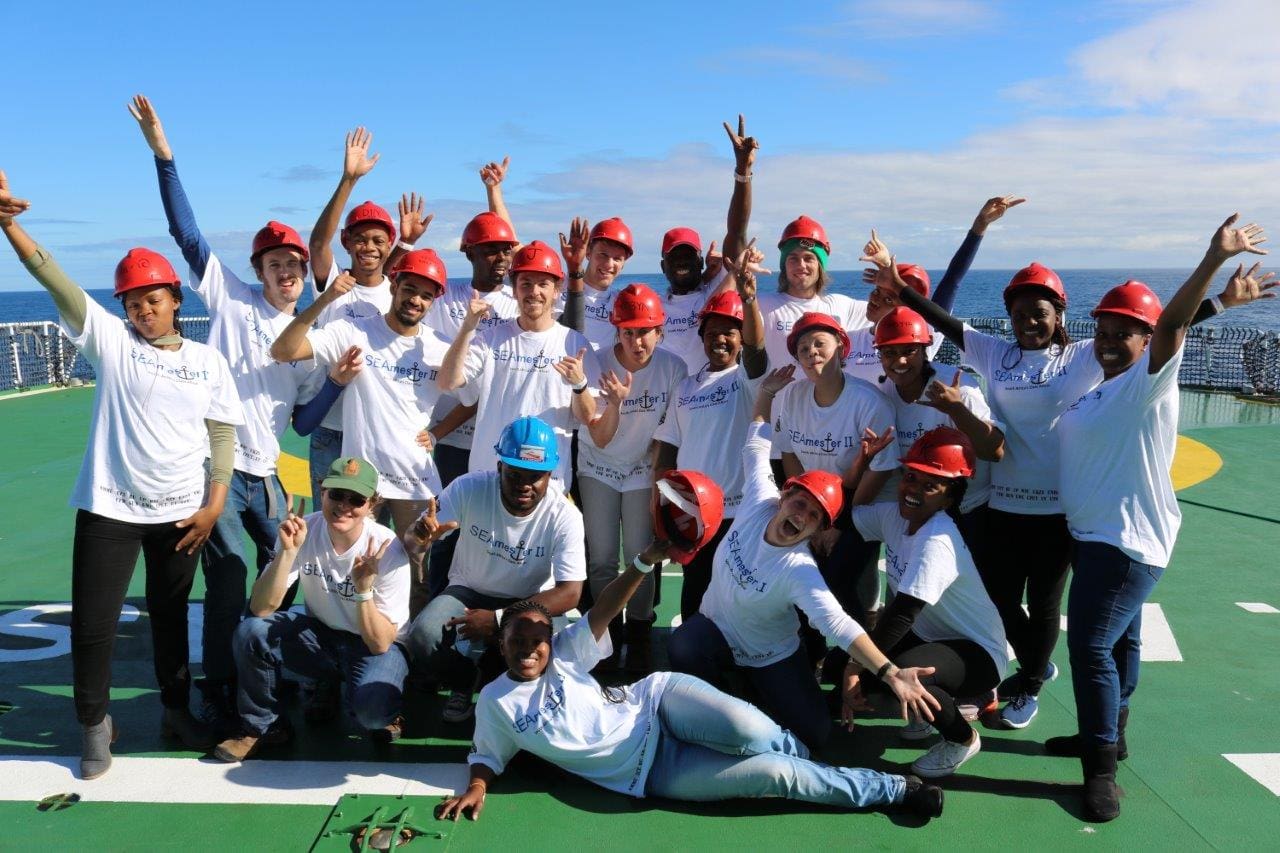
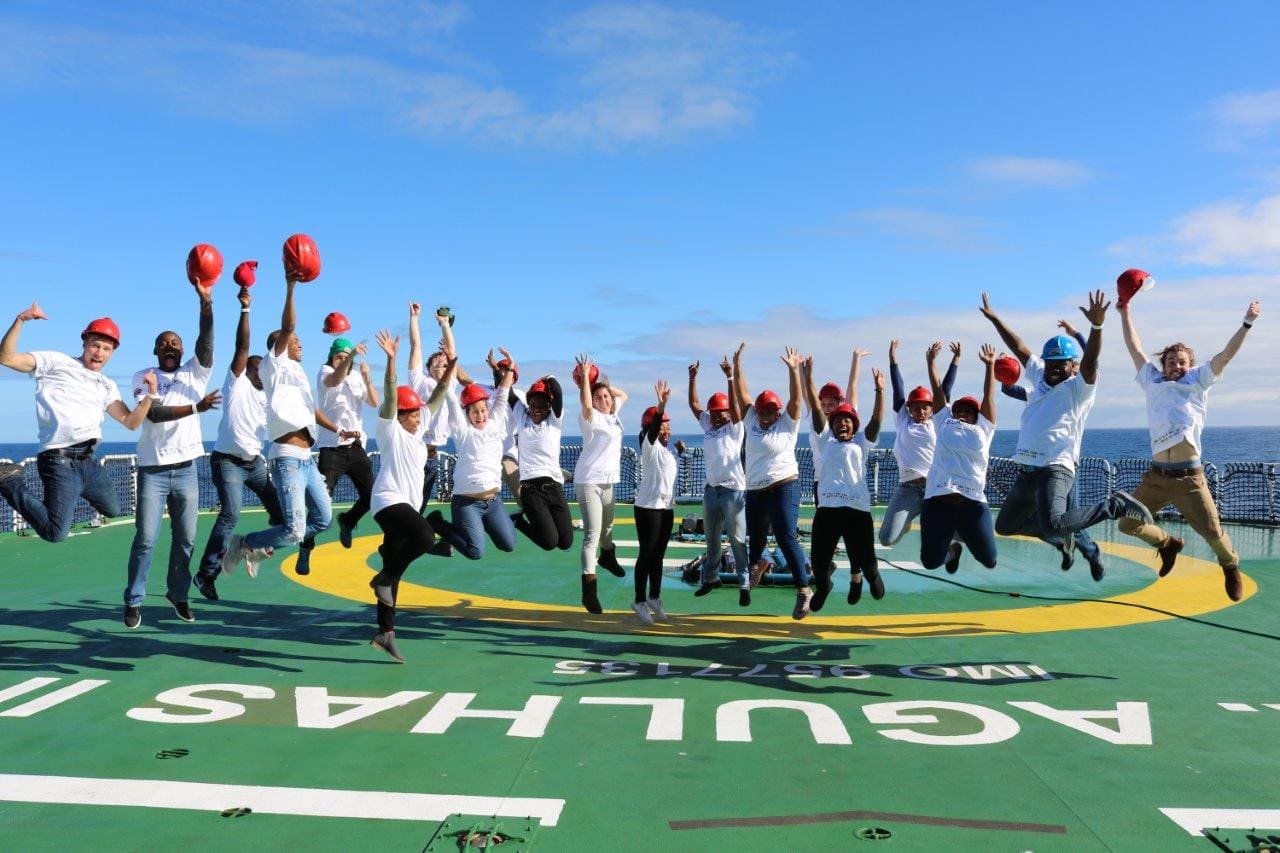 Text Supplied by Laura Braby – SAEON- Egagasini Node. Student Comments supplied by Isabelle Ansorge. Images available on
Text Supplied by Laura Braby – SAEON- Egagasini Node. Student Comments supplied by Isabelle Ansorge. Images available on 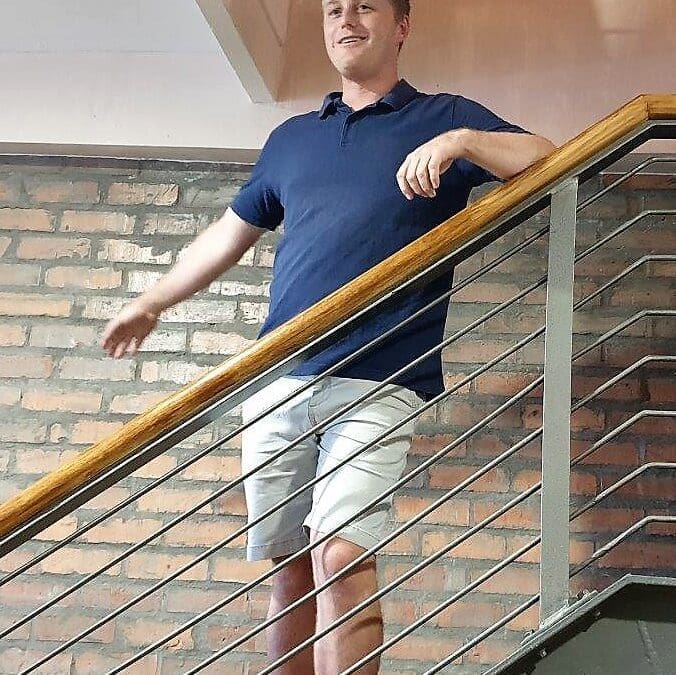
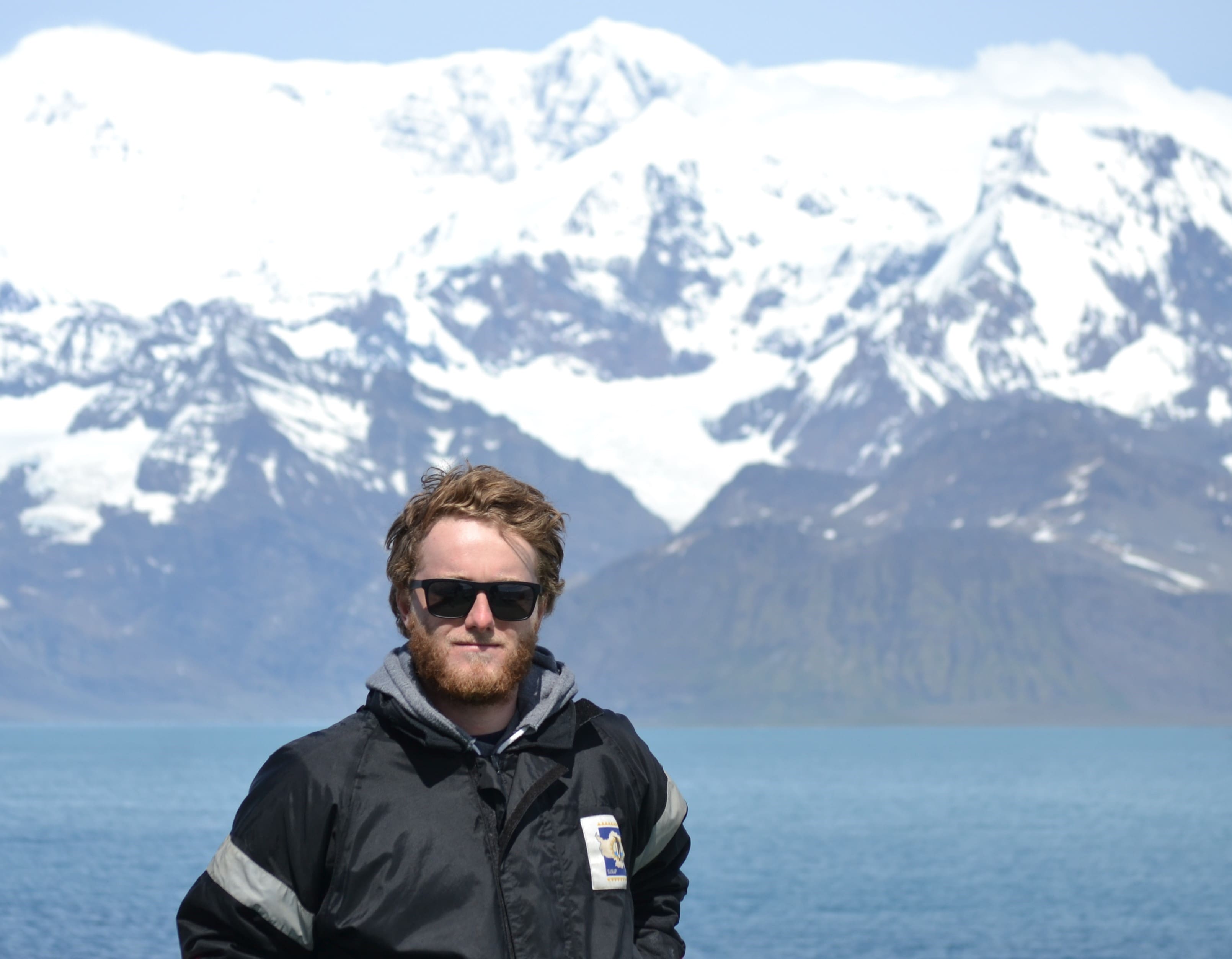 Stephen involvement in SANAP started back in 2016 when he was a student at
Stephen involvement in SANAP started back in 2016 when he was a student at 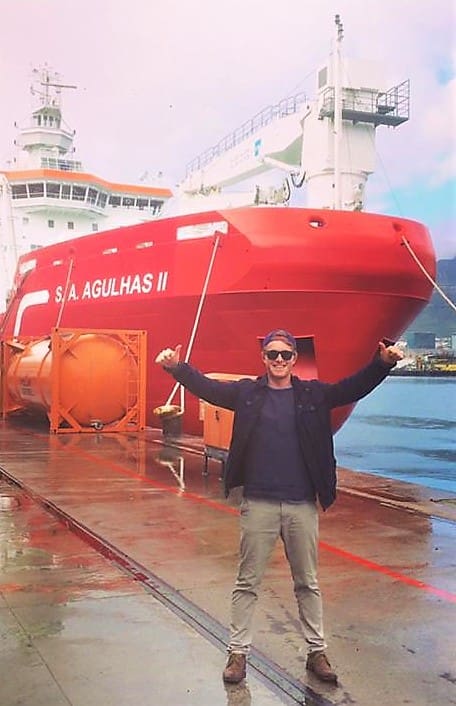
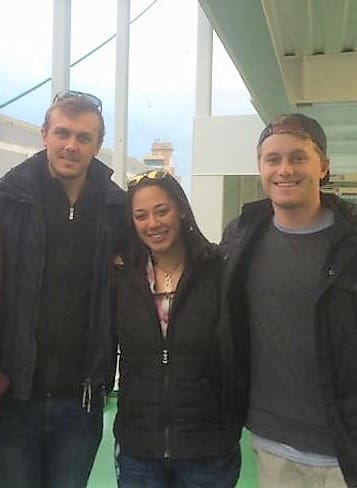
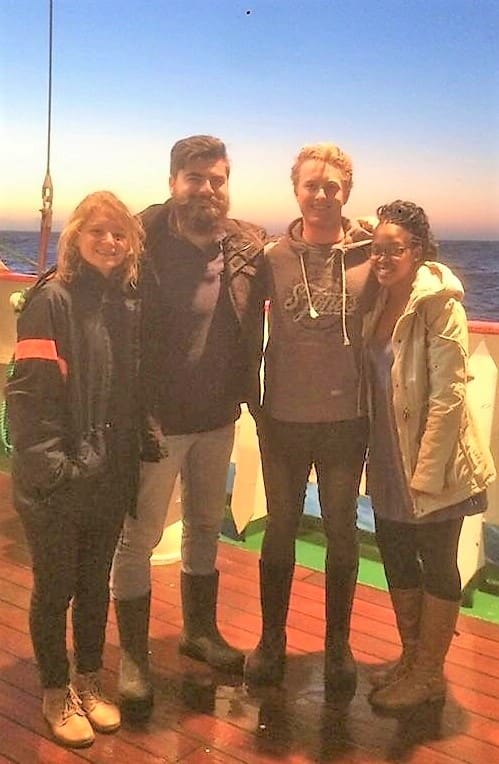 Throughout my university career I had been very involved in home-brewing and the brewing industry. I was virtually brewing as much as I was studying and started a nano brewery in the back of a local Cape Town pub. I would bounce between classes and the brewery daily spending most of my time forging relationships with bars and brewers. Before I knew it, this hobby had turned into a functioning business. I had a small range of beers that I would sell before I’d even brewed the beer. As a student, cash and cash flow are always a difficulty and this sales approach (which is very unusual) worked for my situation.
Throughout my university career I had been very involved in home-brewing and the brewing industry. I was virtually brewing as much as I was studying and started a nano brewery in the back of a local Cape Town pub. I would bounce between classes and the brewery daily spending most of my time forging relationships with bars and brewers. Before I knew it, this hobby had turned into a functioning business. I had a small range of beers that I would sell before I’d even brewed the beer. As a student, cash and cash flow are always a difficulty and this sales approach (which is very unusual) worked for my situation.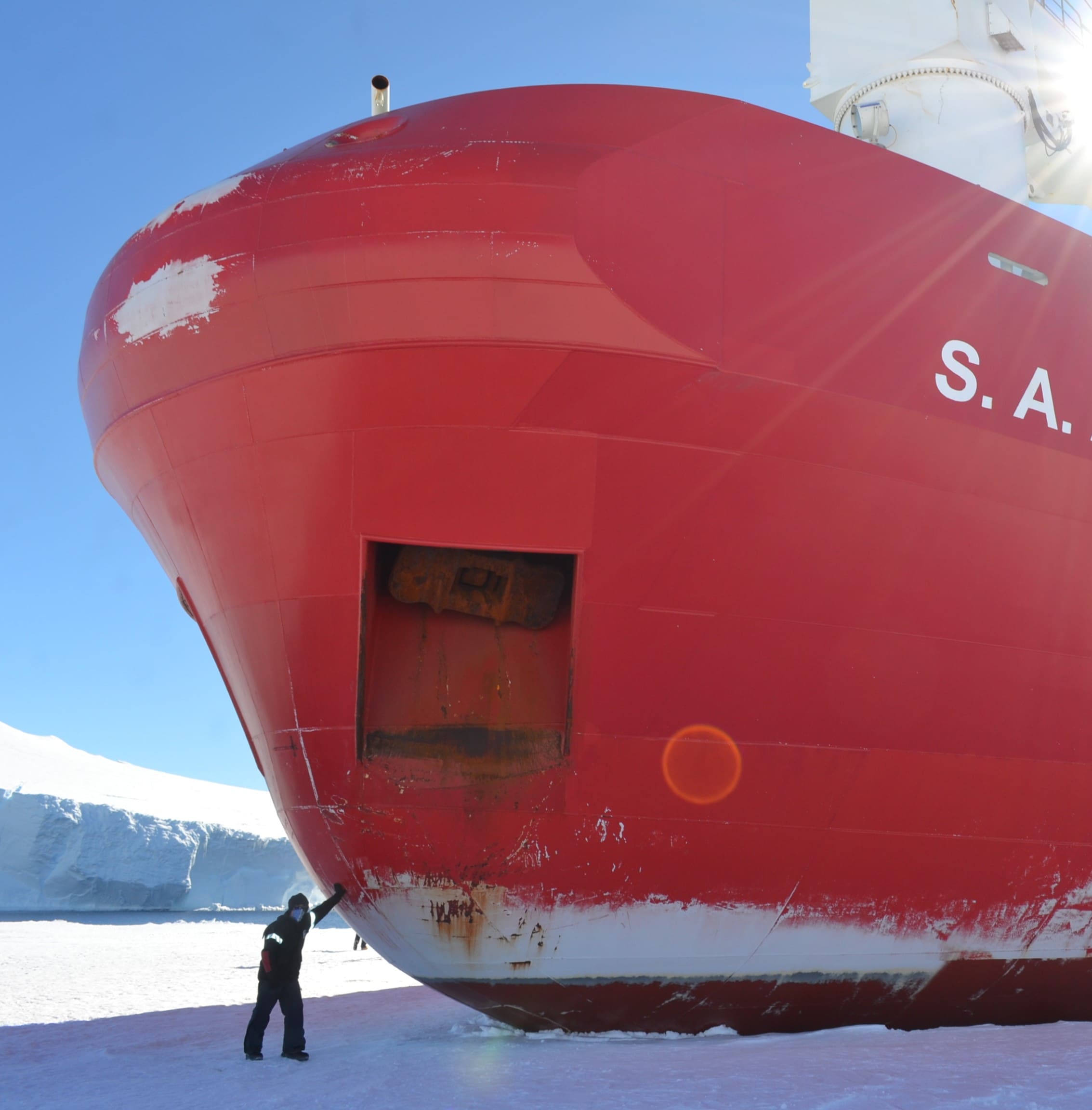

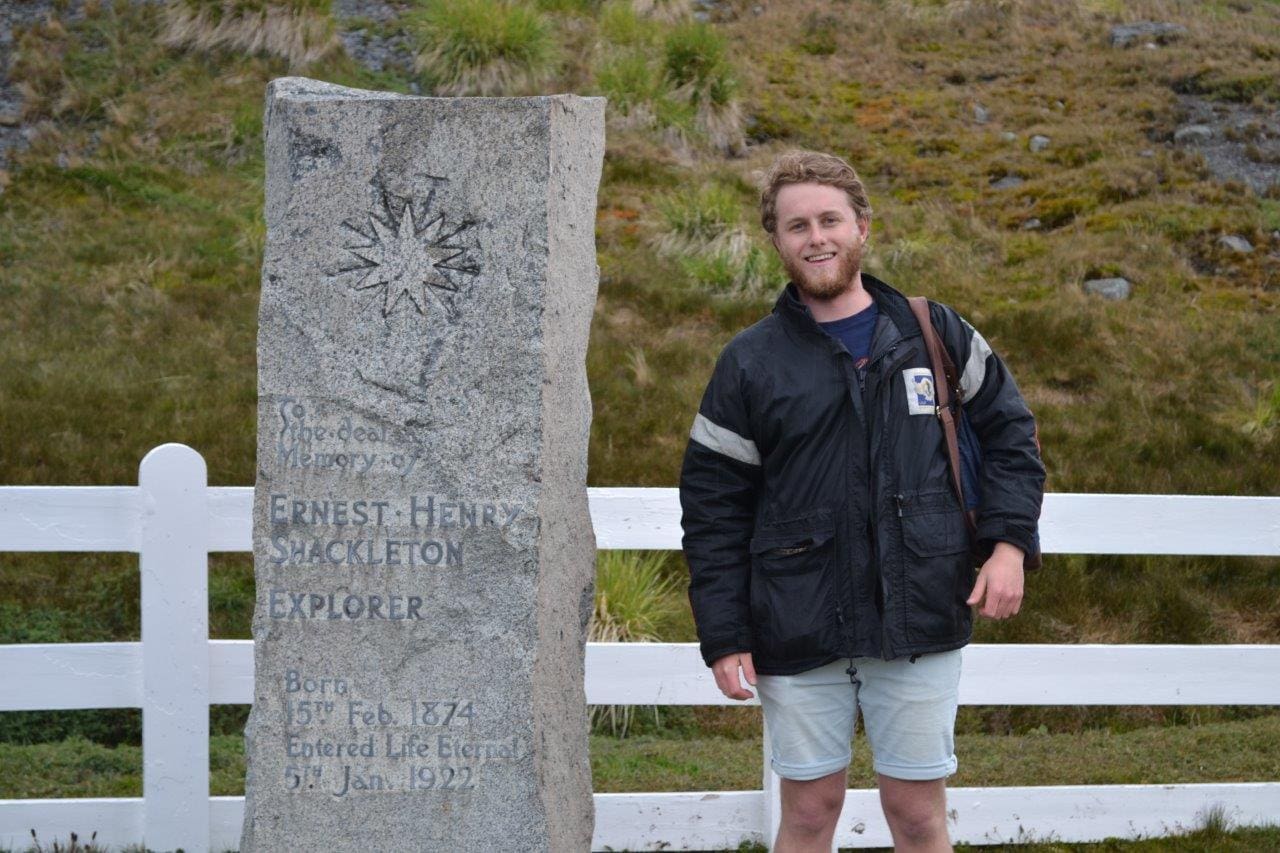 The
The 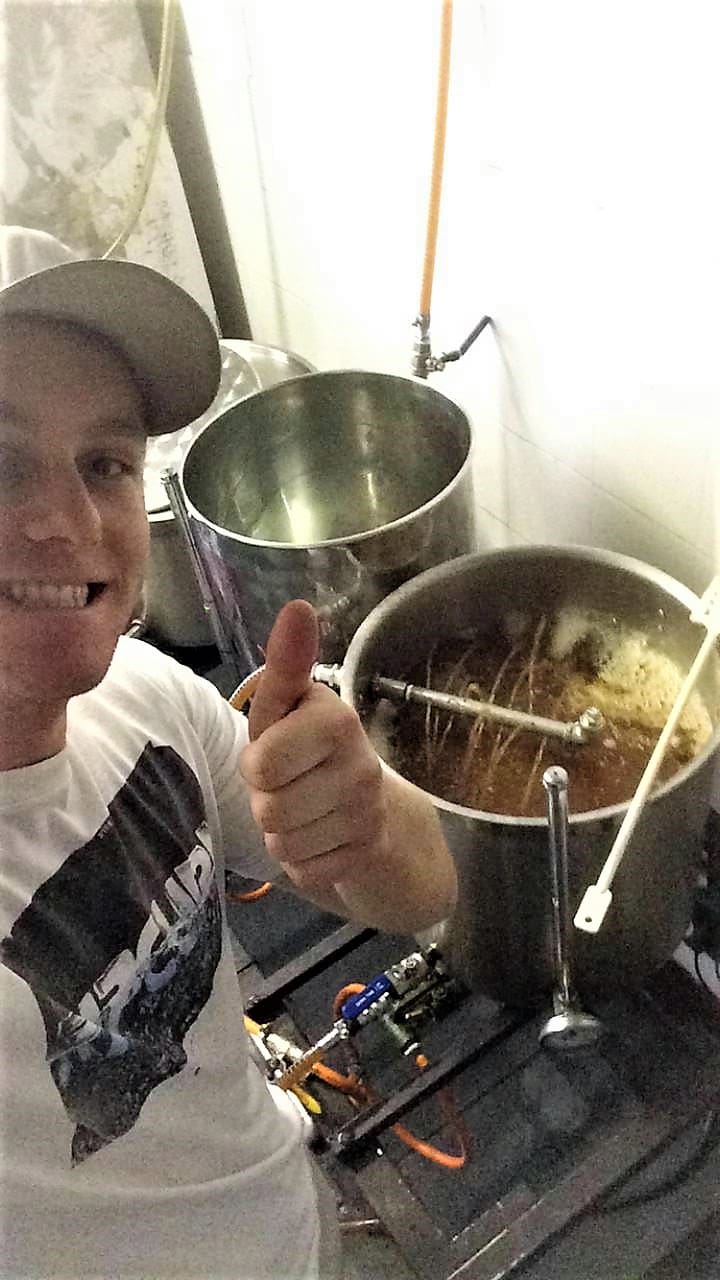
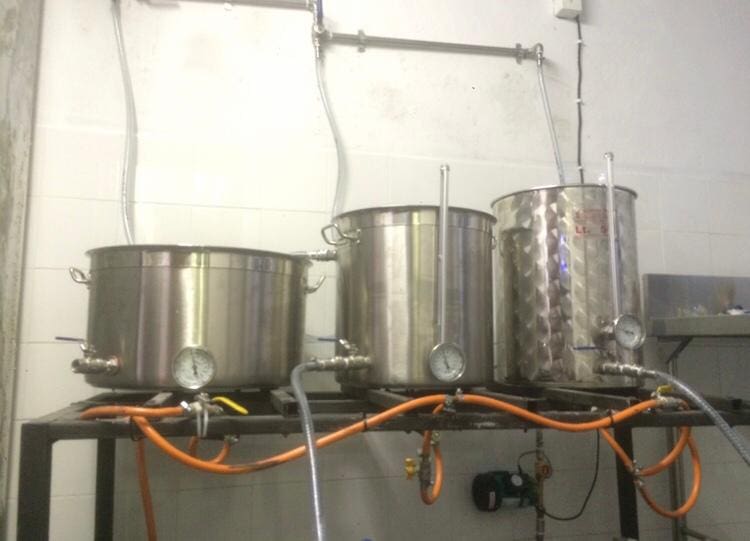 My biggest life decision came after the SANAE 56 take over expedition. I had to choose whether to continue my studies or work in the field that I had studied or to pursue the brewing business. At the time the business did not feel like a sustainable option, but I saw it as an experience that I could learn from. It all fell into place when I secured an investor that funded a proposal, I put forward to purchase a brewery from the UK. Signed, sealed and my brewing path had been decided. I spent two months in the UK packing up a brewery into a container to send back to Cape Town. The equipment was in perfect condition when it landed after a long cruise from Bristol port. Over the next few years, the business grew, and the brand has become established in the brewing industry.
My biggest life decision came after the SANAE 56 take over expedition. I had to choose whether to continue my studies or work in the field that I had studied or to pursue the brewing business. At the time the business did not feel like a sustainable option, but I saw it as an experience that I could learn from. It all fell into place when I secured an investor that funded a proposal, I put forward to purchase a brewery from the UK. Signed, sealed and my brewing path had been decided. I spent two months in the UK packing up a brewery into a container to send back to Cape Town. The equipment was in perfect condition when it landed after a long cruise from Bristol port. Over the next few years, the business grew, and the brand has become established in the brewing industry.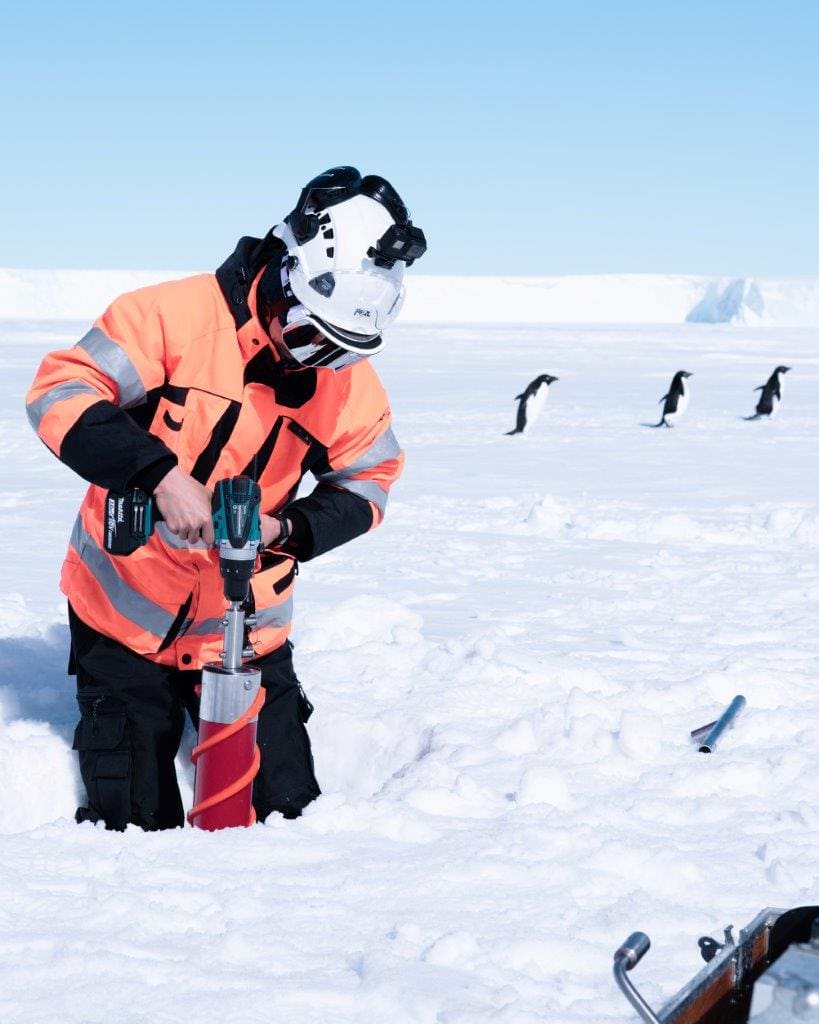
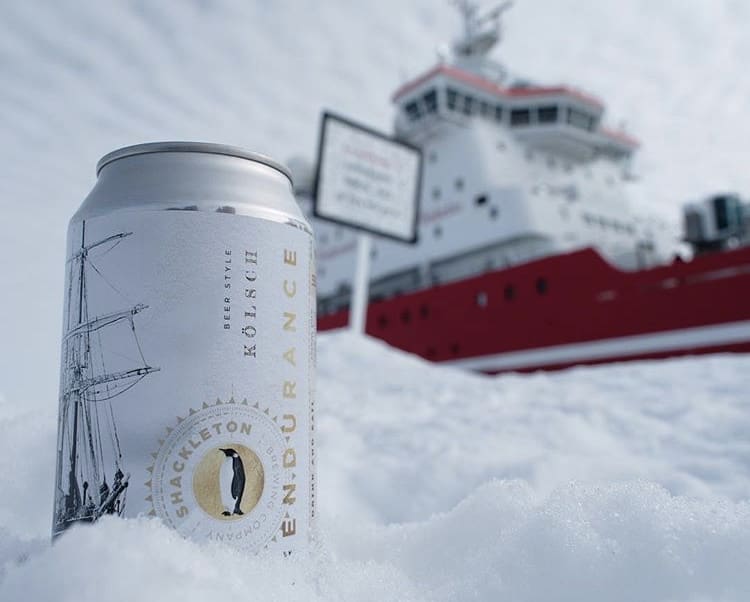 It had always been a goal to collaborate with
It had always been a goal to collaborate with 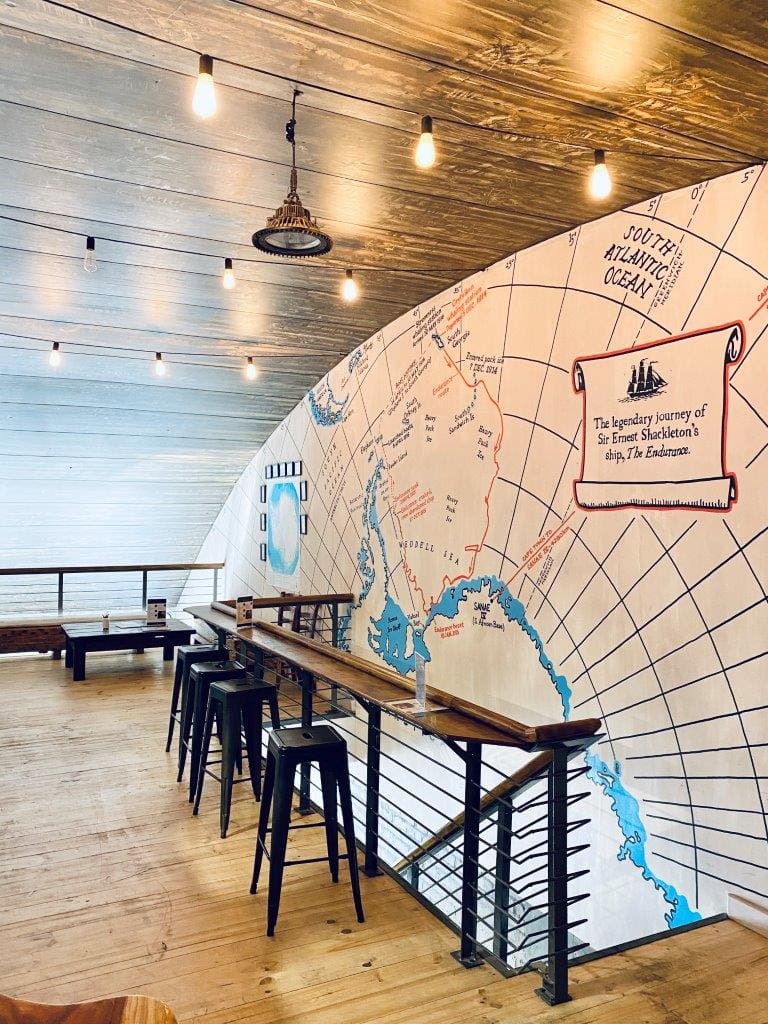

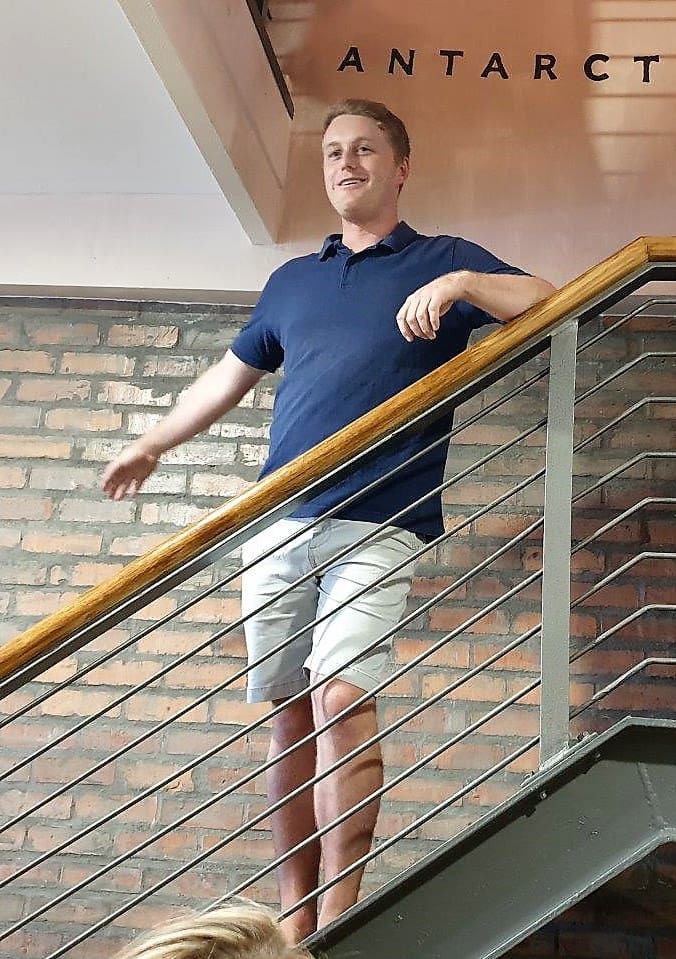
 Why you love your career in science?I have a huge obsession with business and the many ways to make success out of it. That said, it’s incredibly difficult to actually succeed. Where I feel my true expertise, lie is in the science of brewing. I love the care and attention to all variables that create the outcome. Small slip ups in brewing have exponential knock on effects in the end product. There is science in controlling these variables to consistently producing the same product. There is a saying which I really appreciate – “brewing beer is a science but brewing great beer is an art”. I believe if you can marry the two, you’ll have success in the quality of the product.
Why you love your career in science?I have a huge obsession with business and the many ways to make success out of it. That said, it’s incredibly difficult to actually succeed. Where I feel my true expertise, lie is in the science of brewing. I love the care and attention to all variables that create the outcome. Small slip ups in brewing have exponential knock on effects in the end product. There is science in controlling these variables to consistently producing the same product. There is a saying which I really appreciate – “brewing beer is a science but brewing great beer is an art”. I believe if you can marry the two, you’ll have success in the quality of the product.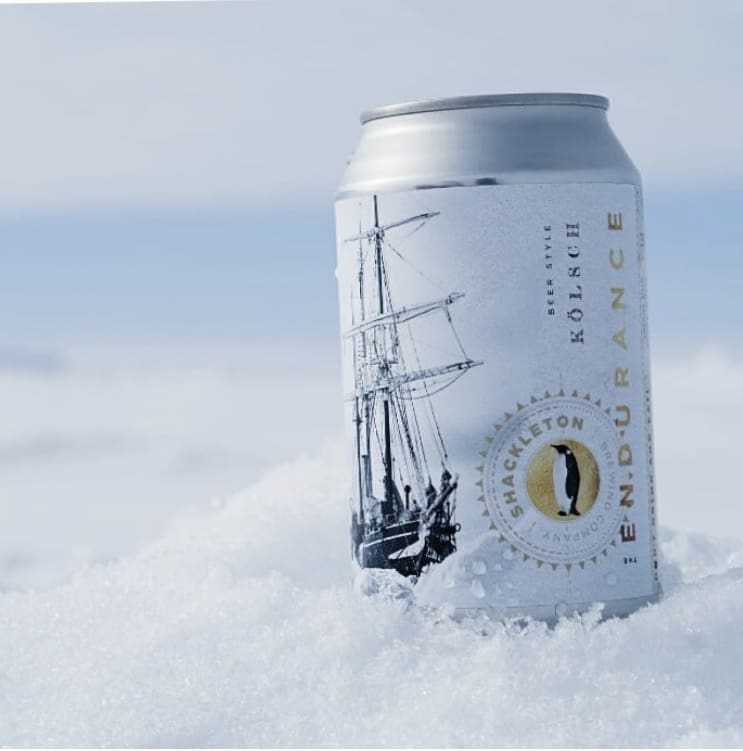
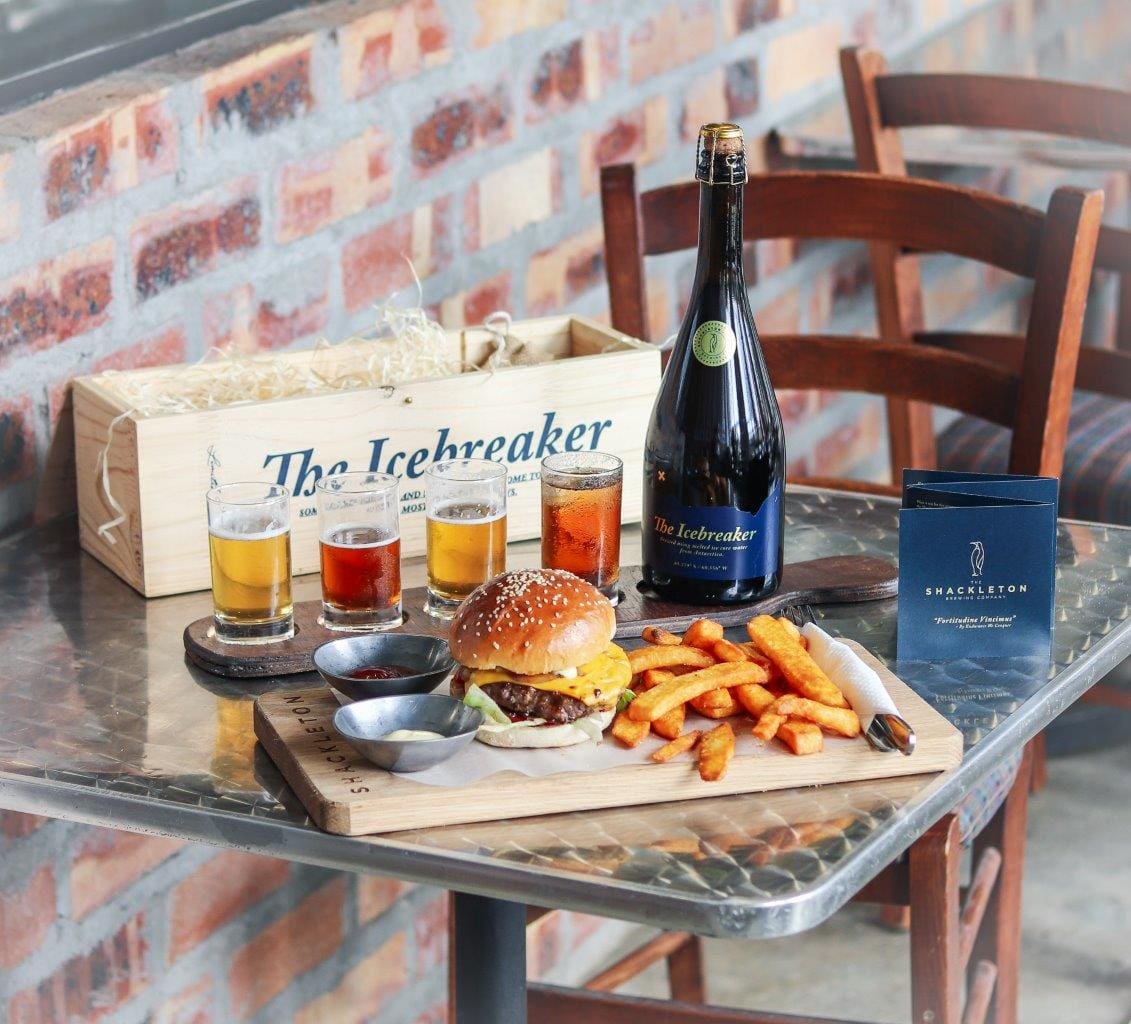
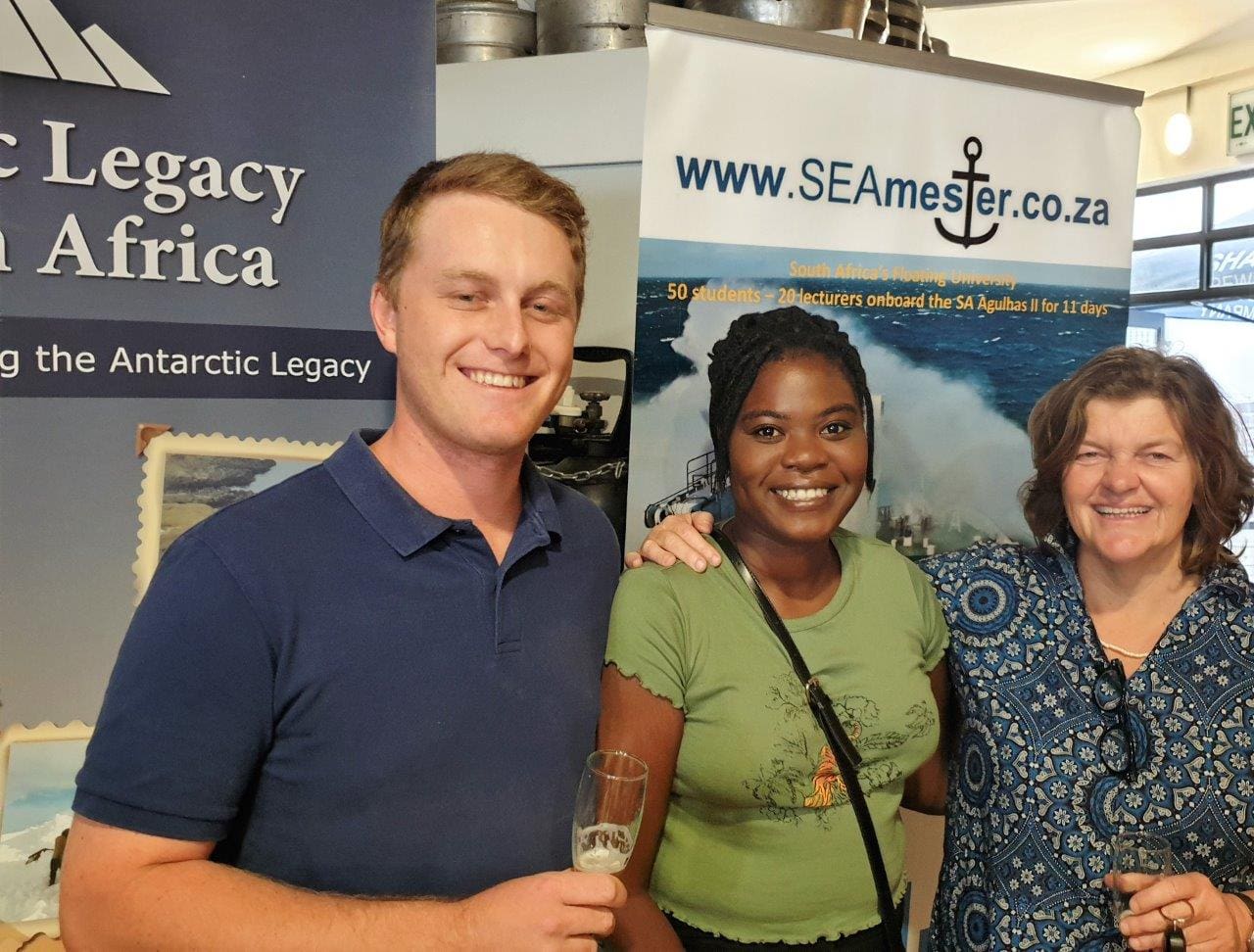 My message to future scientists and researchers: “I believe that science and exploration is a noble pursuit but undoubtedly a rewarding one. It is also our duty to better understand the world and how best to preserve nature its beauty. There is also infinite amount of problems to solve and hypothesize to prove. By becoming a scientist, I believe you are an explorer with intrigue and wonder. I have had the privilege of working with ground-breaking scientists and researchers who have dedicated their life contributing to our collective knowledge about the world.”
My message to future scientists and researchers: “I believe that science and exploration is a noble pursuit but undoubtedly a rewarding one. It is also our duty to better understand the world and how best to preserve nature its beauty. There is also infinite amount of problems to solve and hypothesize to prove. By becoming a scientist, I believe you are an explorer with intrigue and wonder. I have had the privilege of working with ground-breaking scientists and researchers who have dedicated their life contributing to our collective knowledge about the world.”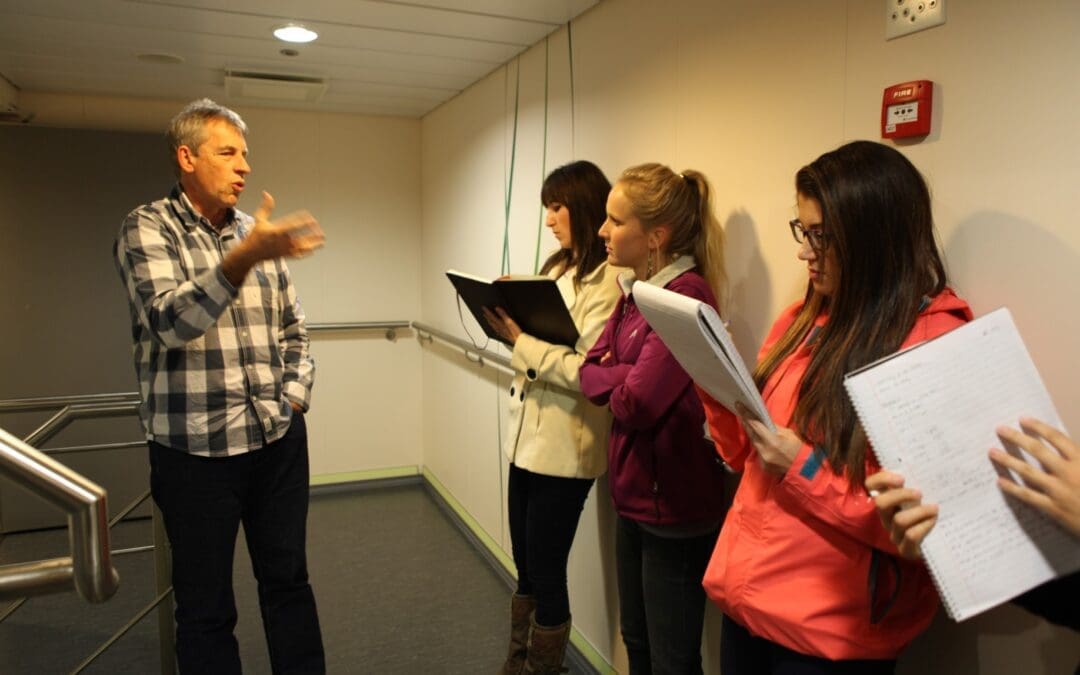
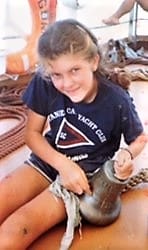
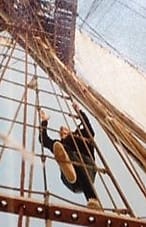
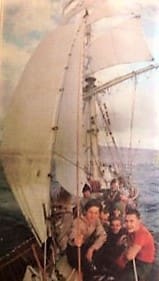
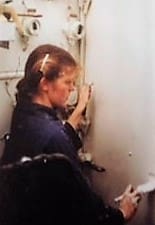 Isabelle as a child always wanted to be an oceanographer. “When I was 13 my father sent me off for 6 months on a Tall Ship to sail around Africa. And so, having grown up on sailing ships and sailing the world at a very young age it seemed only natural to follow in my passion to build a career around the sea.
Isabelle as a child always wanted to be an oceanographer. “When I was 13 my father sent me off for 6 months on a Tall Ship to sail around Africa. And so, having grown up on sailing ships and sailing the world at a very young age it seemed only natural to follow in my passion to build a career around the sea.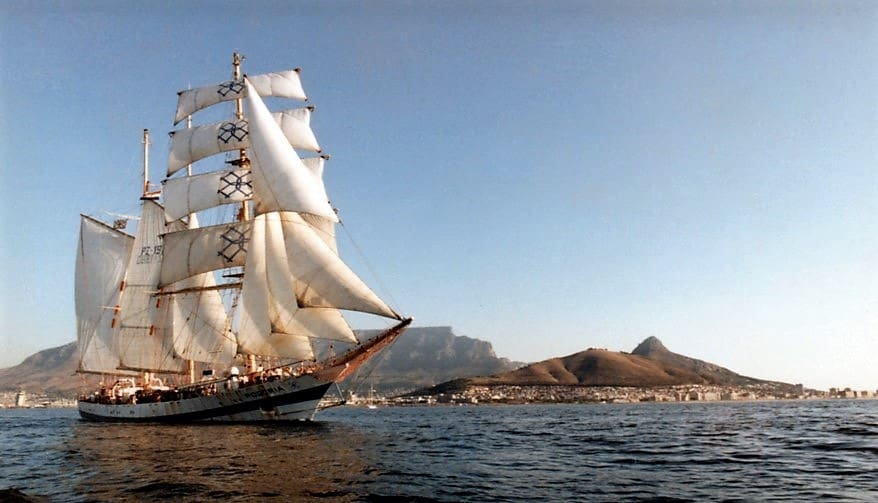
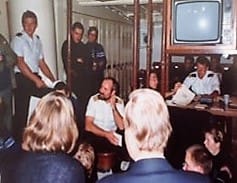
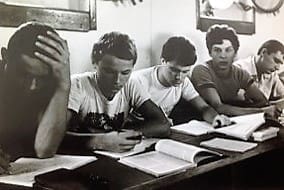 I first studied at
I first studied at 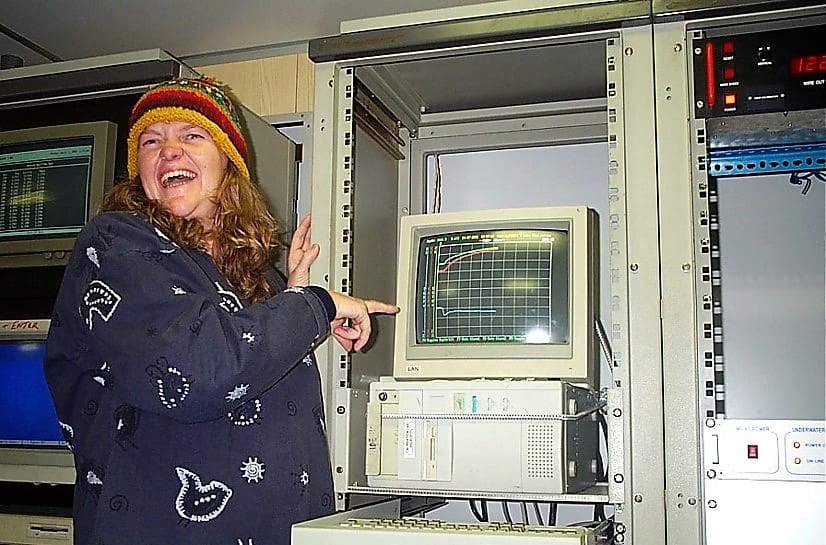
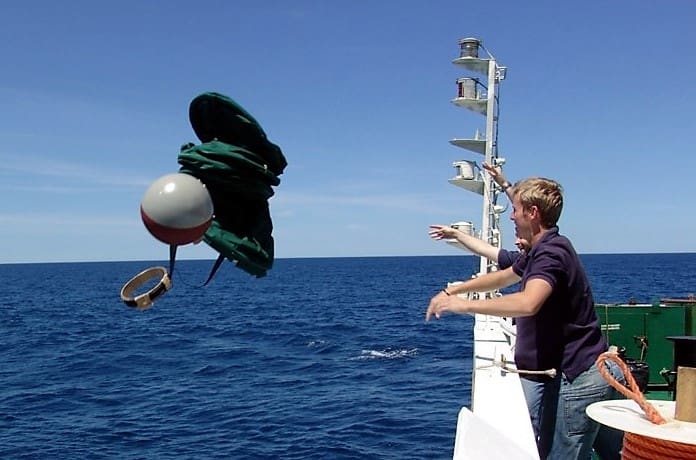
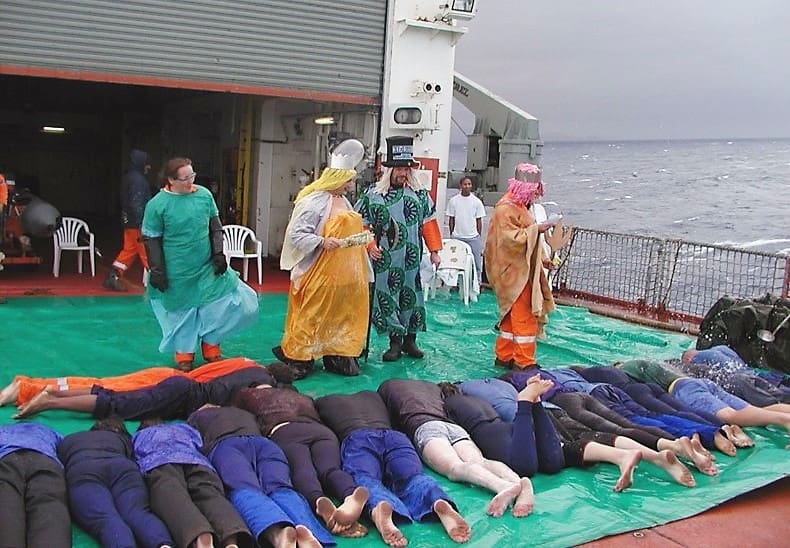 One of my first jobs at
One of my first jobs at 
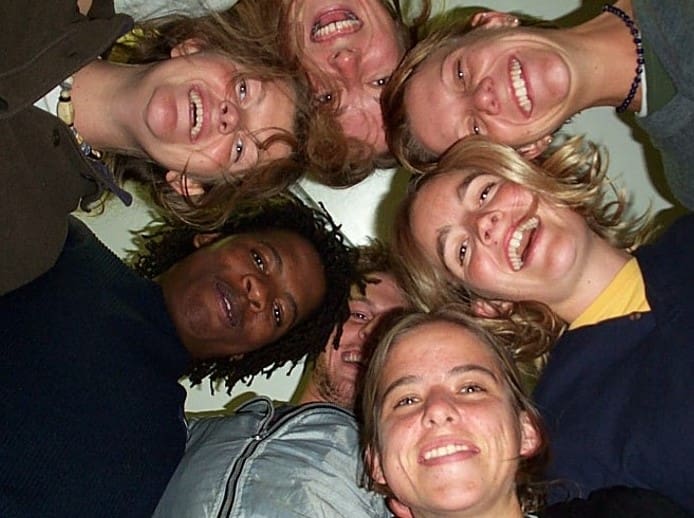 Isabelle’s Working Life: “I was employed as a lecturer at UCT in 2006 and have worked hard to build a career both nationally and internationally in observational oceanography. My passion and love for the sea can be seen in the many opportunities that I create for students both at UCT, and as can be seen from the
Isabelle’s Working Life: “I was employed as a lecturer at UCT in 2006 and have worked hard to build a career both nationally and internationally in observational oceanography. My passion and love for the sea can be seen in the many opportunities that I create for students both at UCT, and as can be seen from the 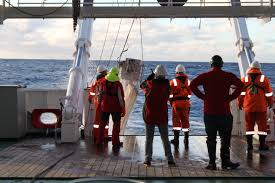
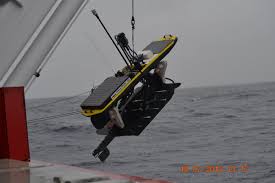
 What drives me:” I love teaching students. Taking a student to sea and watching them learn and seeing their eyes light up when they first board the SA Agulhas II is extremely rewarding. Many of my former students have returned to sea either as senior researchers leading their own cohort of students, or they have built their career in marine management or moved into the academic field. It is so rewarding see young inexperienced students join a cruise and leave imbued with a new confidence and a passion for their discipline.
What drives me:” I love teaching students. Taking a student to sea and watching them learn and seeing their eyes light up when they first board the SA Agulhas II is extremely rewarding. Many of my former students have returned to sea either as senior researchers leading their own cohort of students, or they have built their career in marine management or moved into the academic field. It is so rewarding see young inexperienced students join a cruise and leave imbued with a new confidence and a passion for their discipline.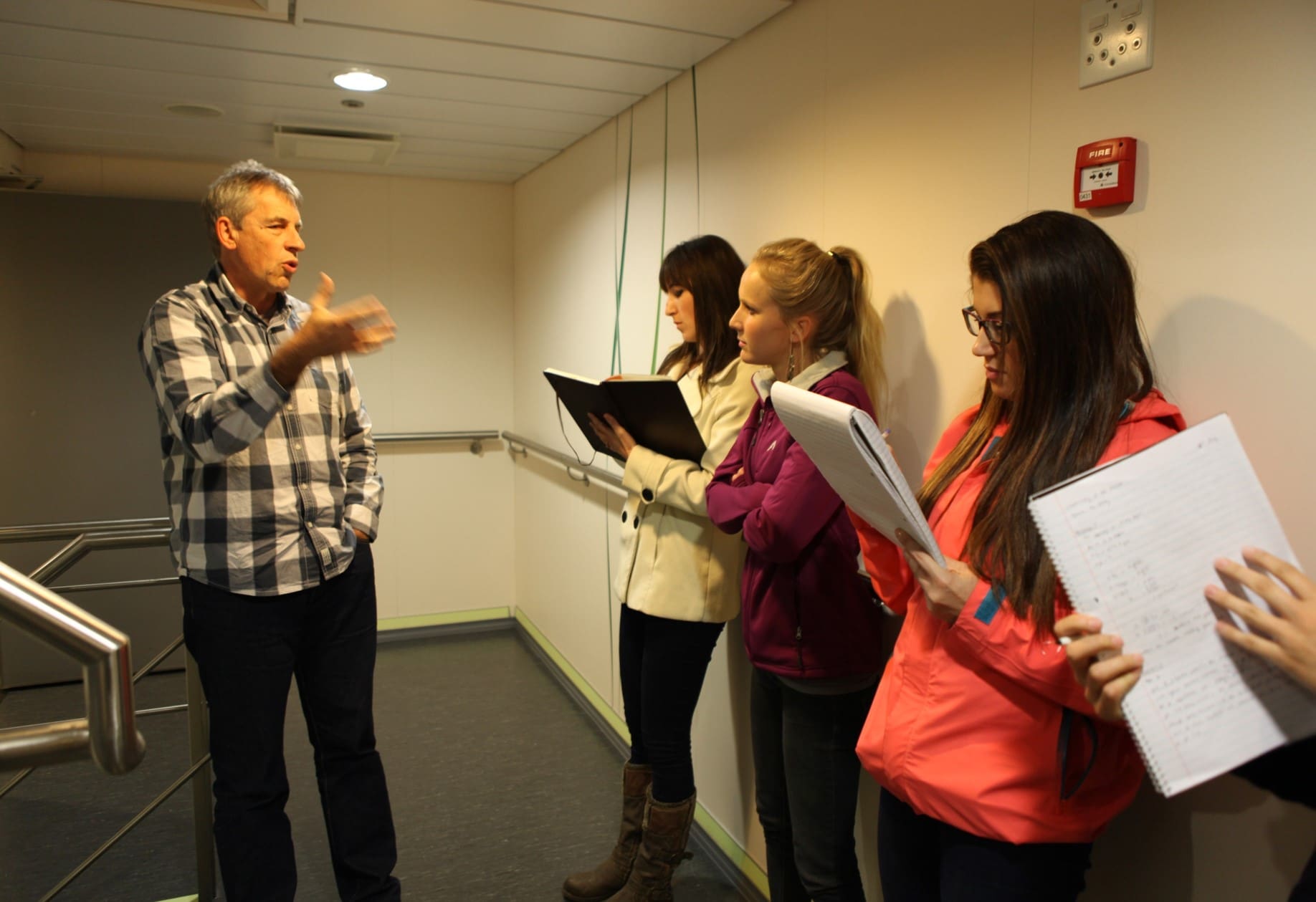 “I am proud of the SEAmester programme and how we have been able to develop linkages with traditionally non marine universities both through their students joining as SEAmester students or their own Lecturers joining the academic programme. The state-of-the-art research vessel, SA Agulhas II, provides such an incredible teaching and research platform for this programme; its size, comfort and shipboard facilities allow groups of 46 students and 30 lecturers to productively interact over a period of 10 days as can the photo of Prof Gammon teaching students in the ship’s stairwell shows so well!.”
“I am proud of the SEAmester programme and how we have been able to develop linkages with traditionally non marine universities both through their students joining as SEAmester students or their own Lecturers joining the academic programme. The state-of-the-art research vessel, SA Agulhas II, provides such an incredible teaching and research platform for this programme; its size, comfort and shipboard facilities allow groups of 46 students and 30 lecturers to productively interact over a period of 10 days as can the photo of Prof Gammon teaching students in the ship’s stairwell shows so well!.” My advice to the young generation: “Four words – always take the initiative! In the UK the only sea-going opportunity I had was to work on the River Tamar outside of Plymouth! In South Africa our students go to Antarctica! But it takes you to make that difference. We have so many wonderful opportunities in South Africa and access to such incredible marine programmes and platforms but the sparkplug to get started must come from you. All academics get frustrated by students not willing to engage with their surroundings and
My advice to the young generation: “Four words – always take the initiative! In the UK the only sea-going opportunity I had was to work on the River Tamar outside of Plymouth! In South Africa our students go to Antarctica! But it takes you to make that difference. We have so many wonderful opportunities in South Africa and access to such incredible marine programmes and platforms but the sparkplug to get started must come from you. All academics get frustrated by students not willing to engage with their surroundings and 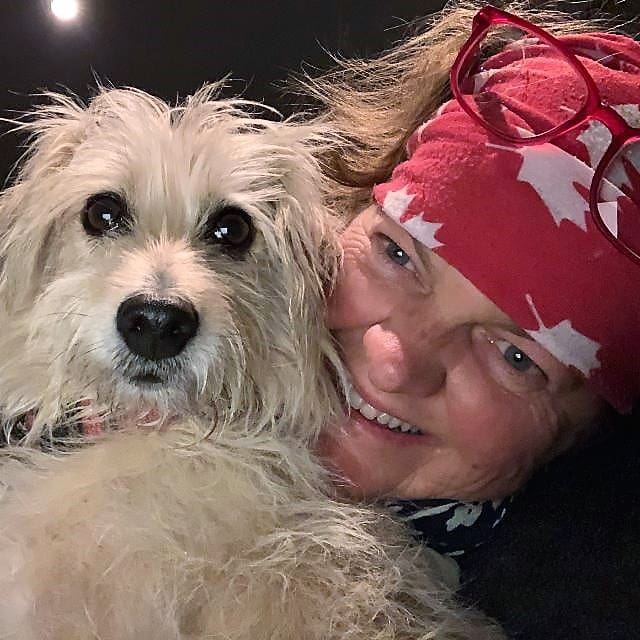 not even realise the enormous privilege it is to be on a research vessel such as the SA Agulhas II. You don’t have to be the brightest student in the class but by staying engaged, enthusiastic, interactive and dedicated to your studies you will always go much further in life. Opportunities are endless but it takes you to grab it!”
not even realise the enormous privilege it is to be on a research vessel such as the SA Agulhas II. You don’t have to be the brightest student in the class but by staying engaged, enthusiastic, interactive and dedicated to your studies you will always go much further in life. Opportunities are endless but it takes you to grab it!”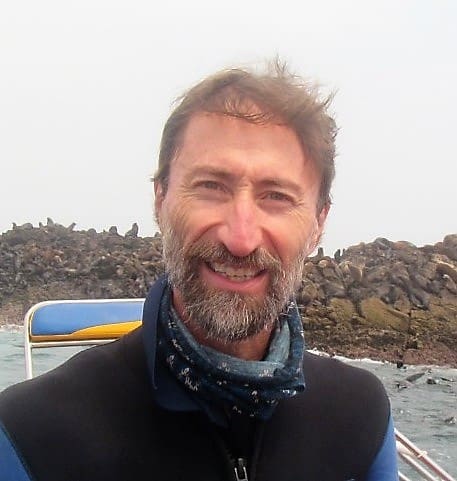
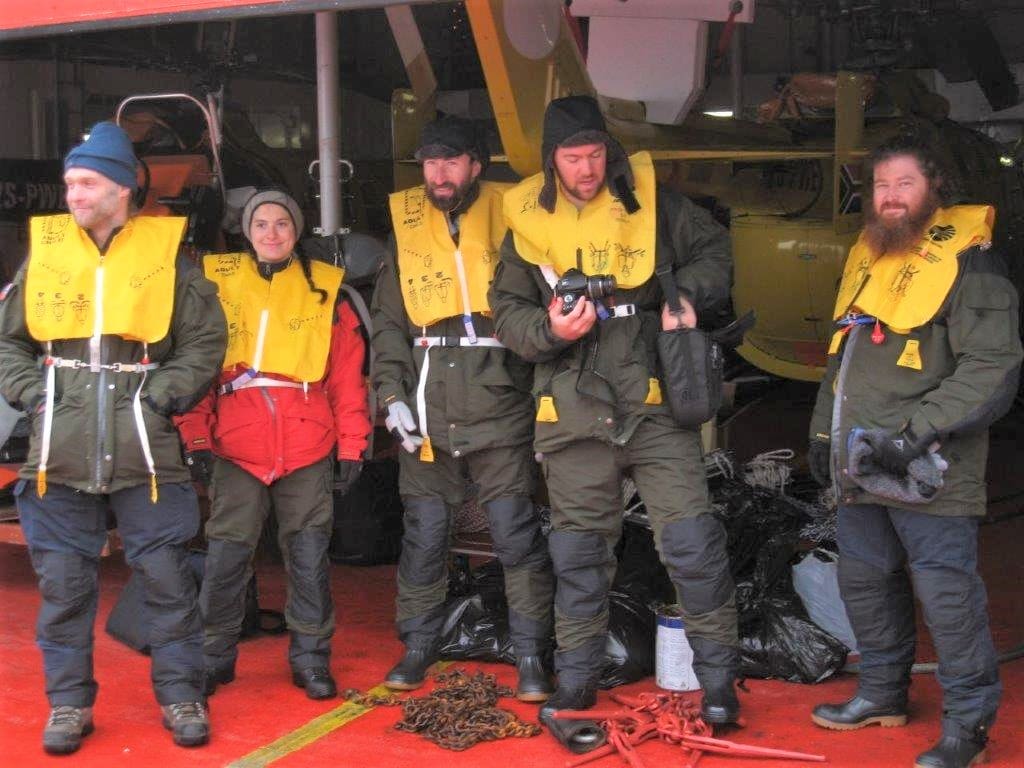
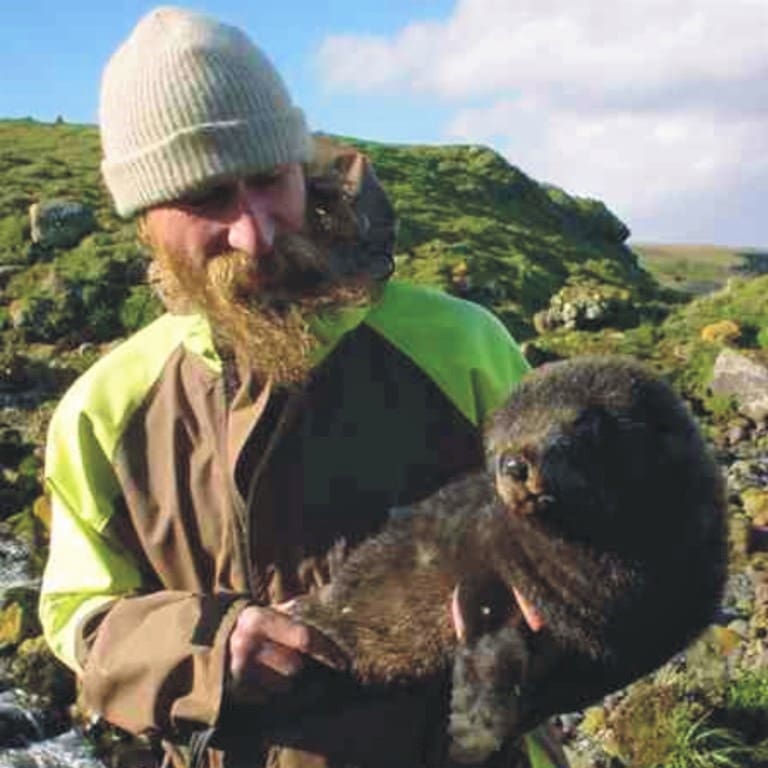
 Above (l-r) : Greg(middle) to leave for Bouvet; Greg on Marion Island; Greg on Bouvet Island
Above (l-r) : Greg(middle) to leave for Bouvet; Greg on Marion Island; Greg on Bouvet Island 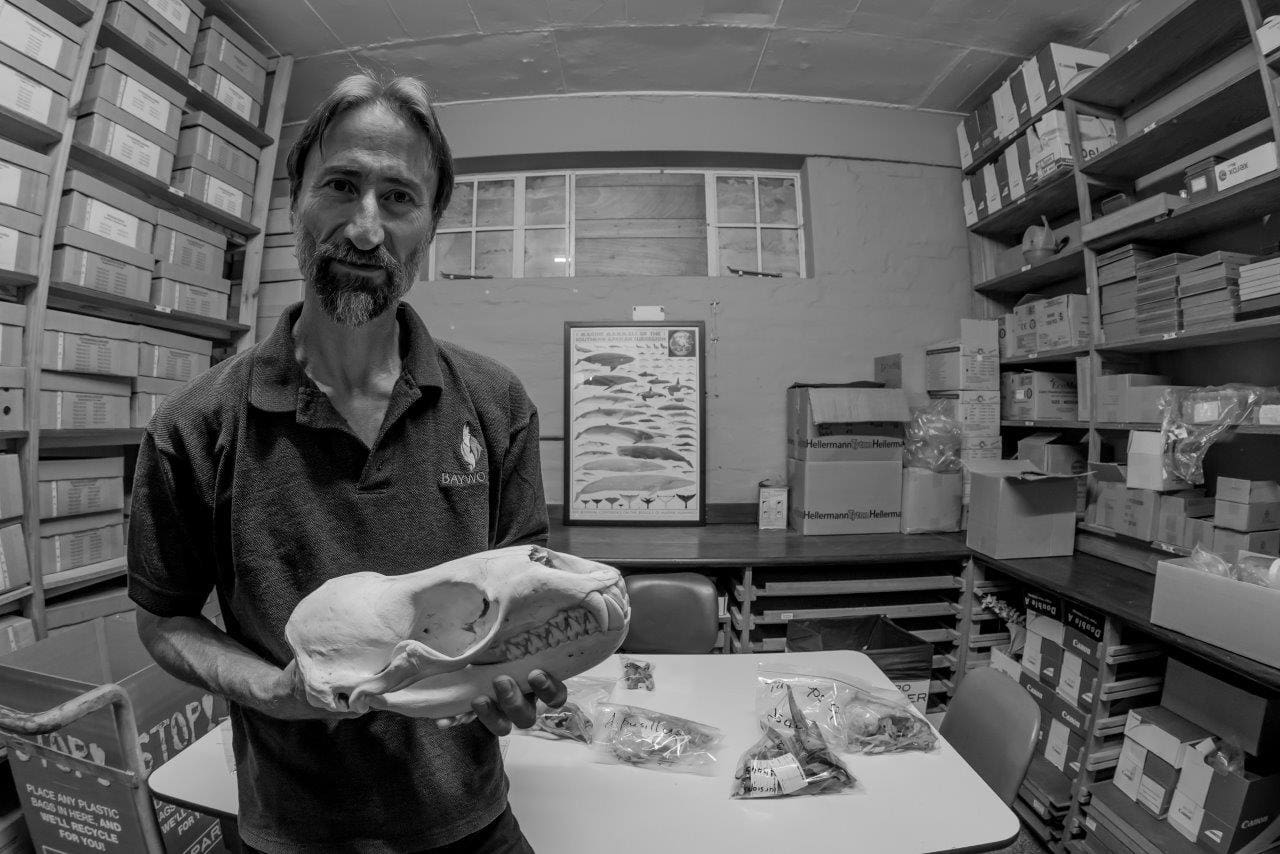 I took up my current employment in 2006 as marine mammal biologist at the
I took up my current employment in 2006 as marine mammal biologist at the 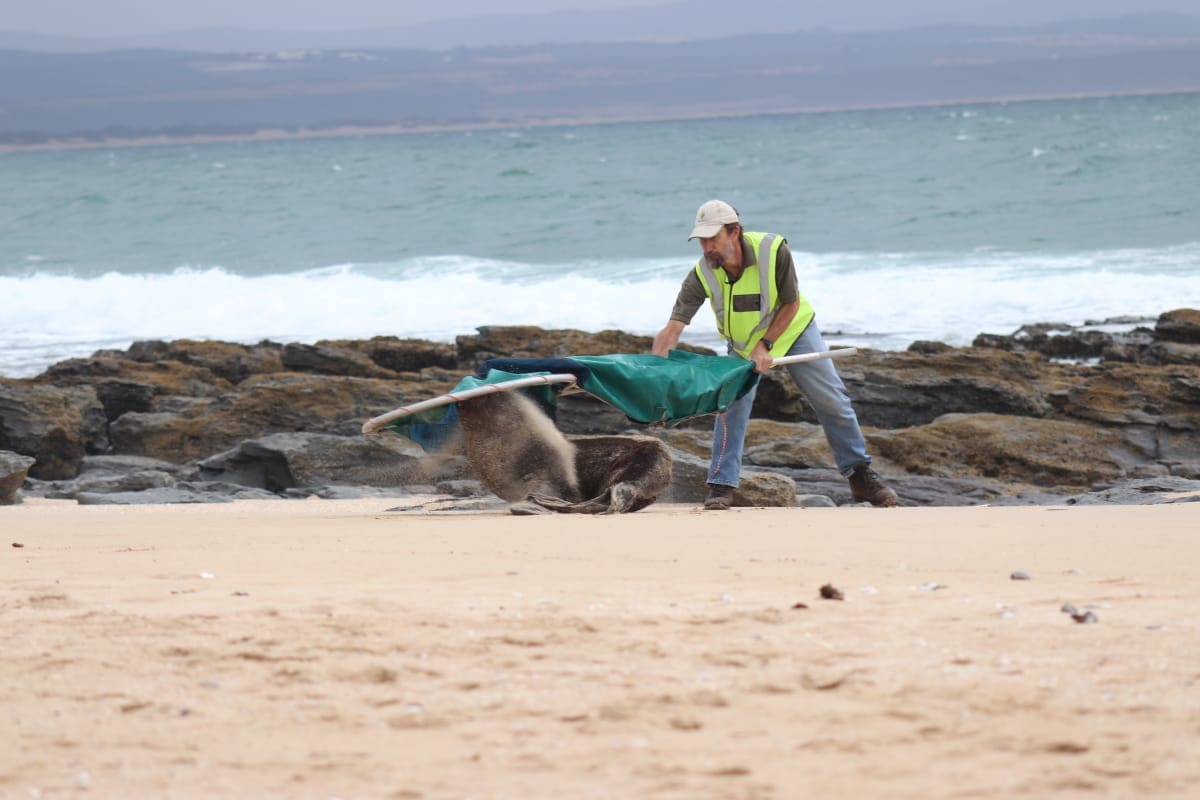
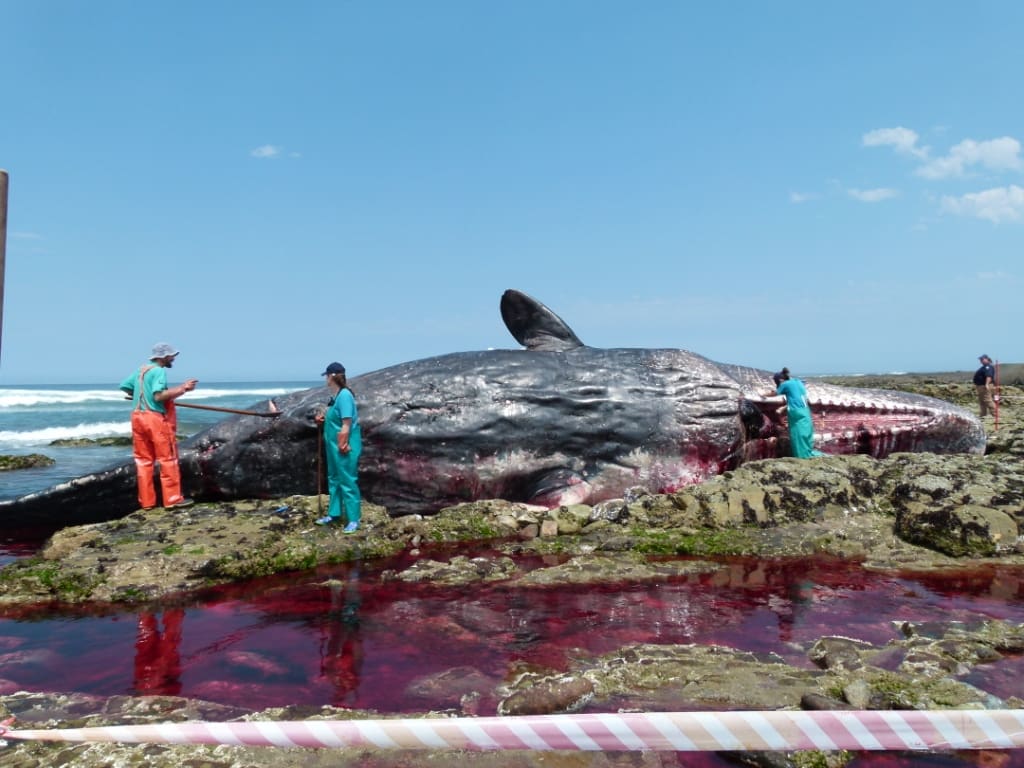
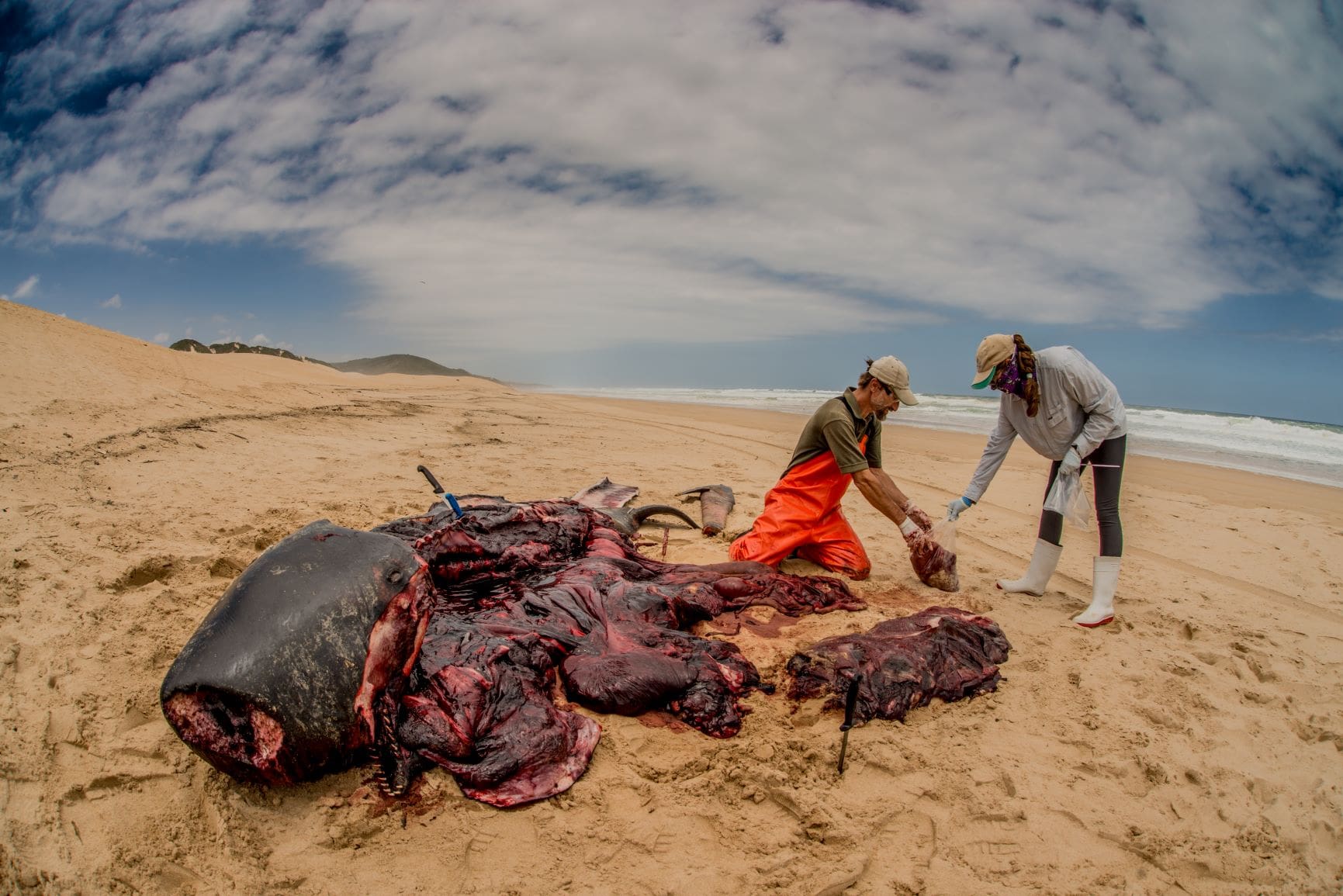 When I was very young I was keen to become a game ranger. While in high school this had morphed into being a zoologist. And this is the career that I was lucky enough to follow. It has given me wonderful opportunities and allowed me to do some fascinating things. I had always wanted to work in wild places and so arriving on Marion Island for the first time was like arriving in paradise. Before the end of my first year, I new that I had to return. I loved every moment on this rough place. Not only was it beautiful and challenging, but it also allowed one the opportunity to observe animals fairly closely and wonder about their way of life and behaviour. How did these very distant relatives of our survive in an environment so hostile to us? Thus it was also intellectually stimulating. And I have loved to return to wild places and ask questions about the natural work ever since.
When I was very young I was keen to become a game ranger. While in high school this had morphed into being a zoologist. And this is the career that I was lucky enough to follow. It has given me wonderful opportunities and allowed me to do some fascinating things. I had always wanted to work in wild places and so arriving on Marion Island for the first time was like arriving in paradise. Before the end of my first year, I new that I had to return. I loved every moment on this rough place. Not only was it beautiful and challenging, but it also allowed one the opportunity to observe animals fairly closely and wonder about their way of life and behaviour. How did these very distant relatives of our survive in an environment so hostile to us? Thus it was also intellectually stimulating. And I have loved to return to wild places and ask questions about the natural work ever since.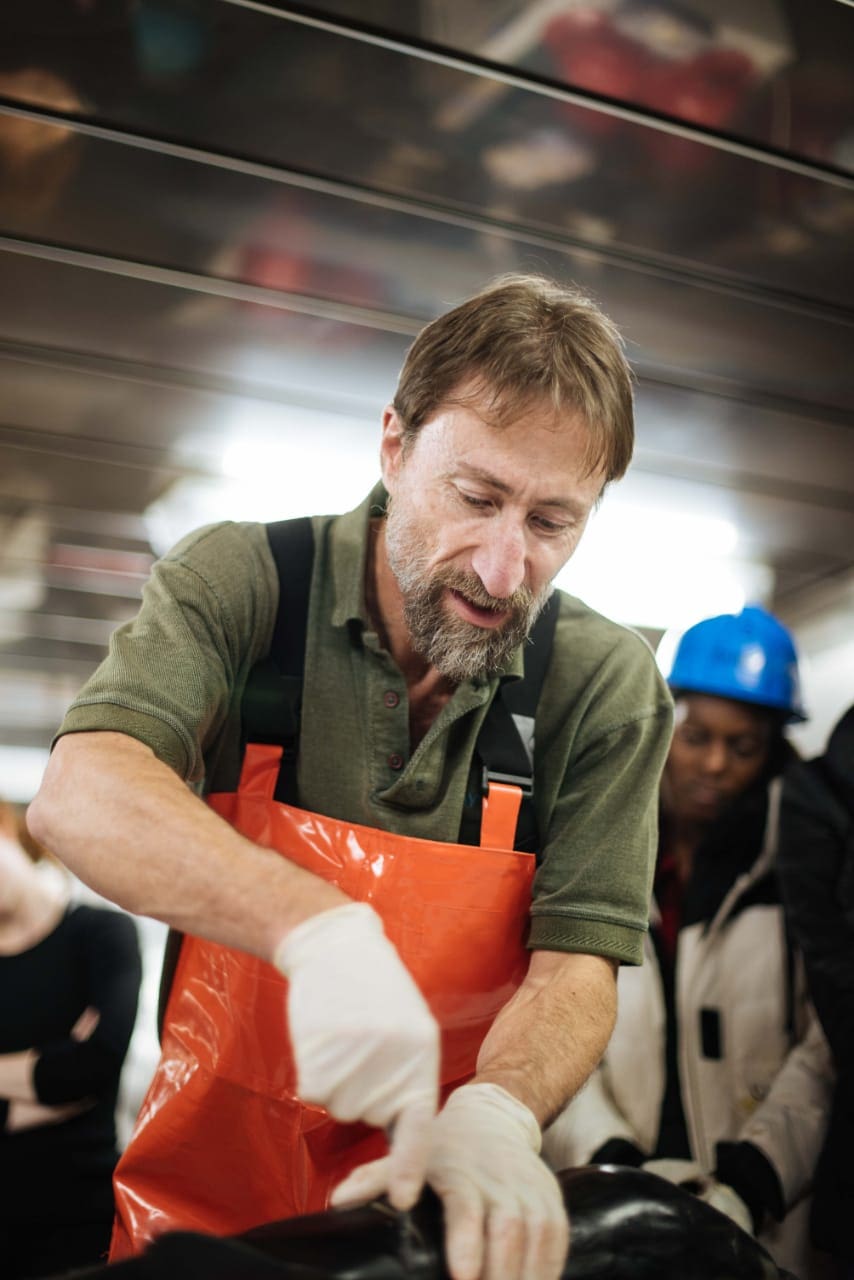
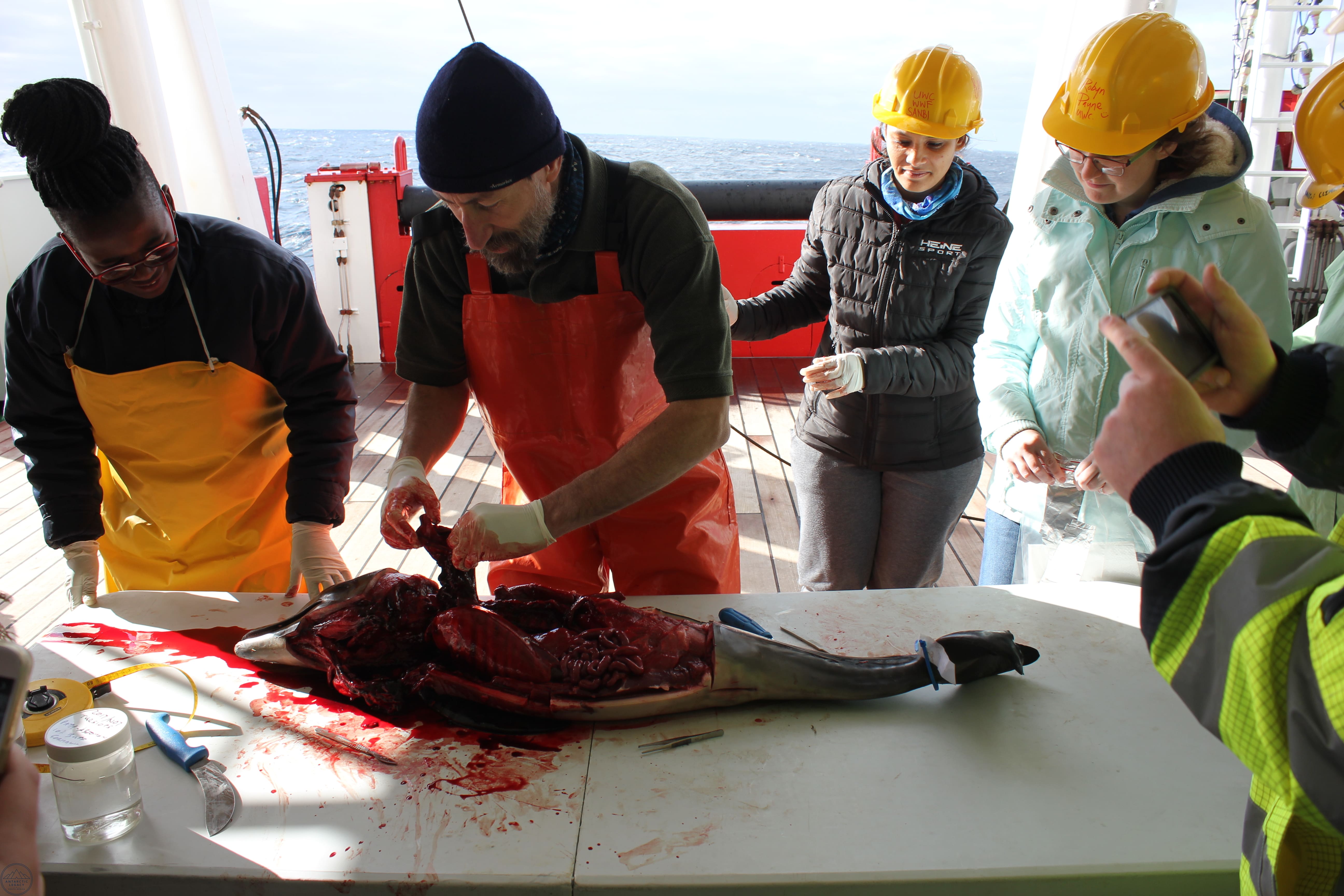 If you want to become a scientist, do what you love. It is a tough career that requires
If you want to become a scientist, do what you love. It is a tough career that requires
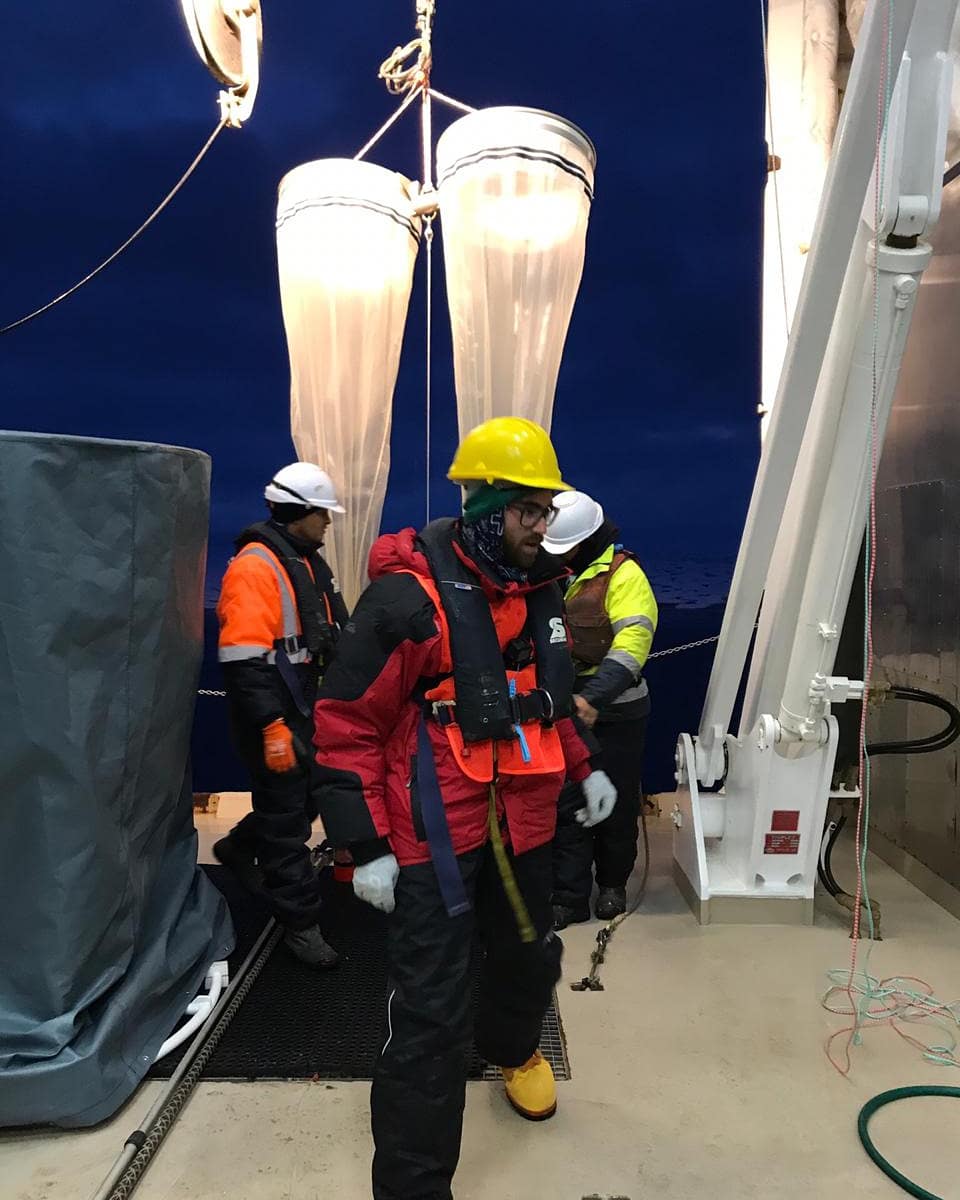
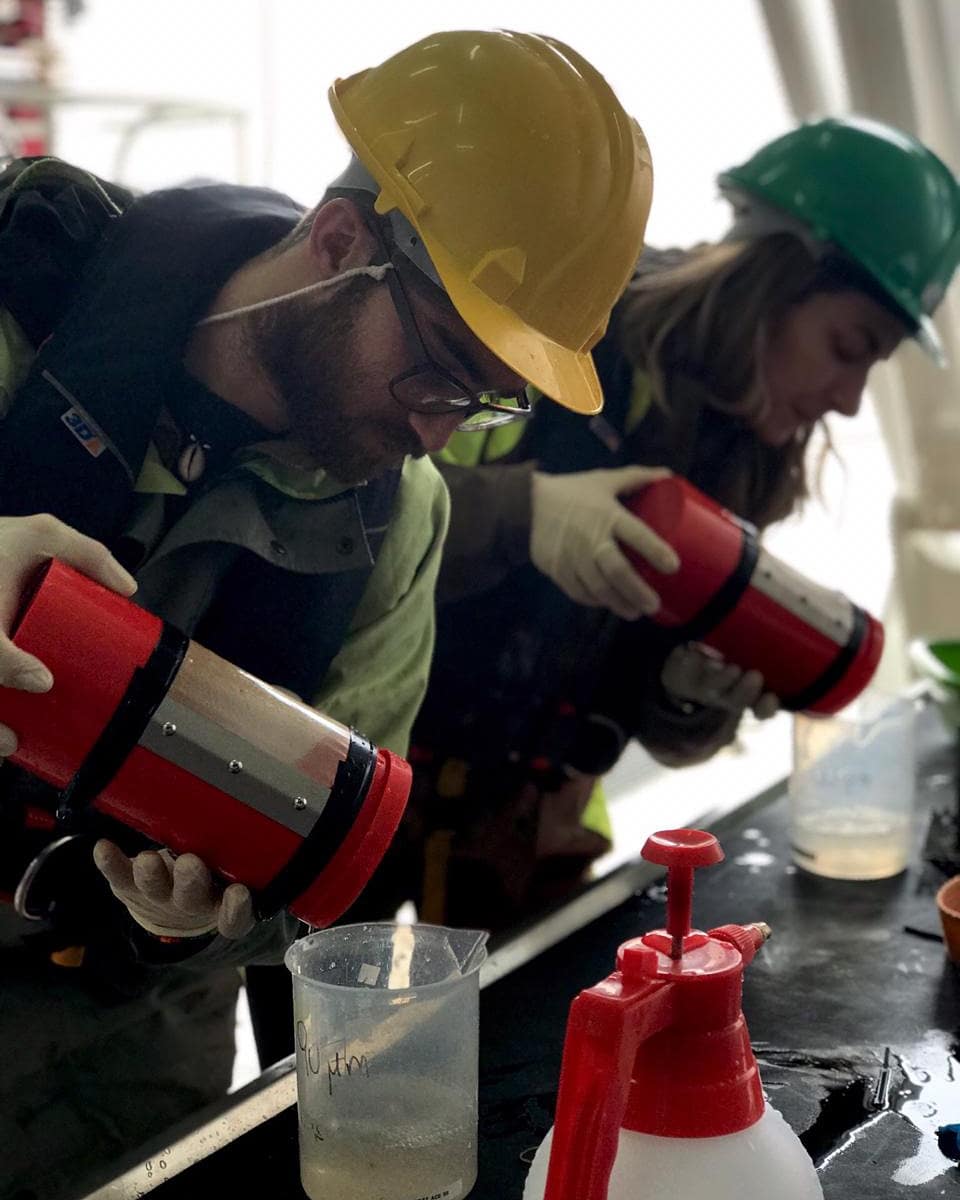
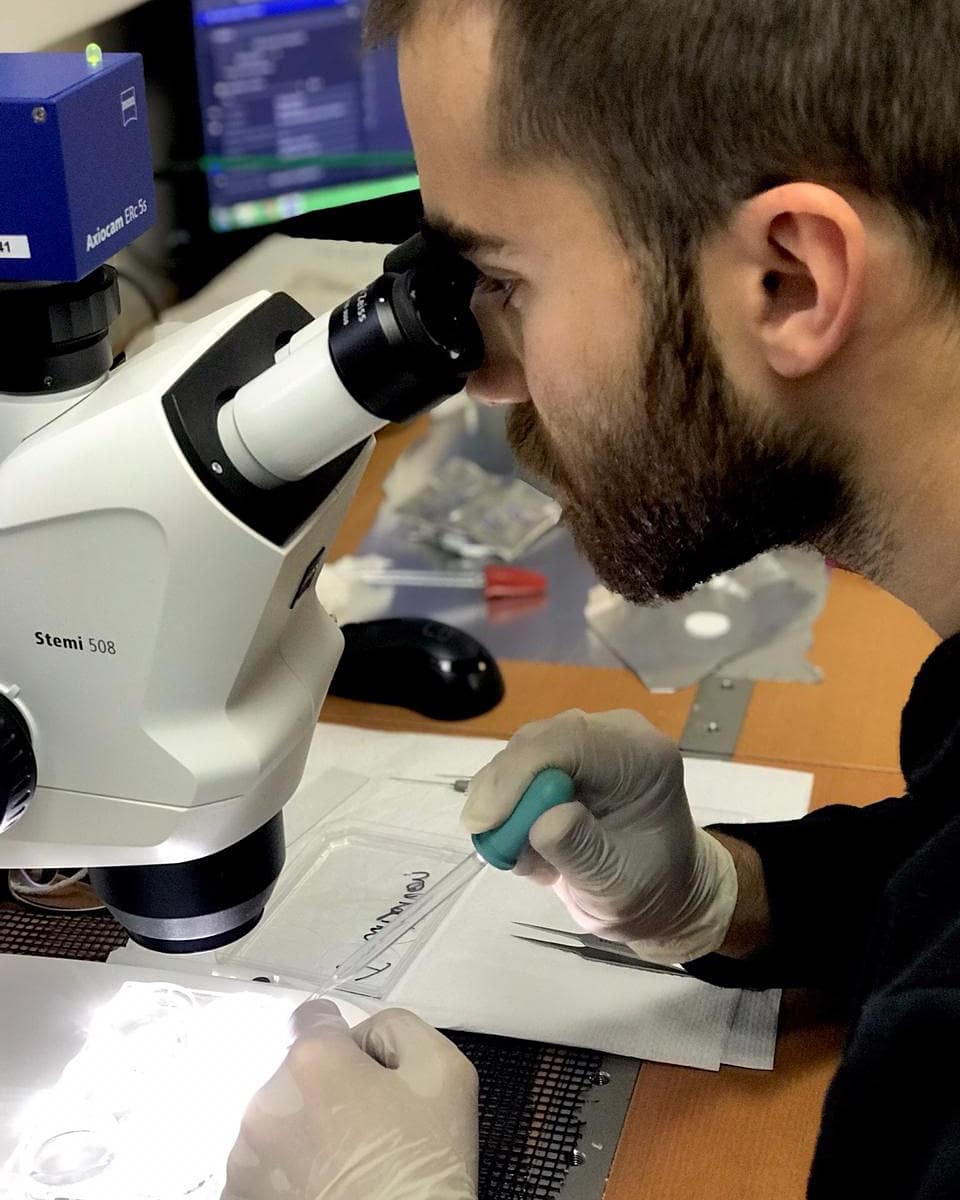
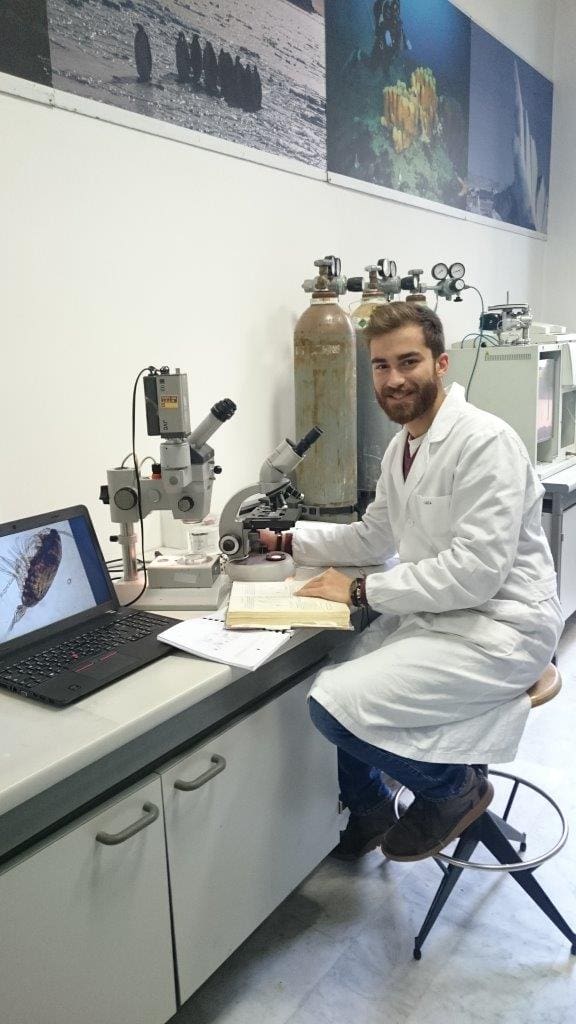 From 2017, he is a PhD student at the
From 2017, he is a PhD student at the 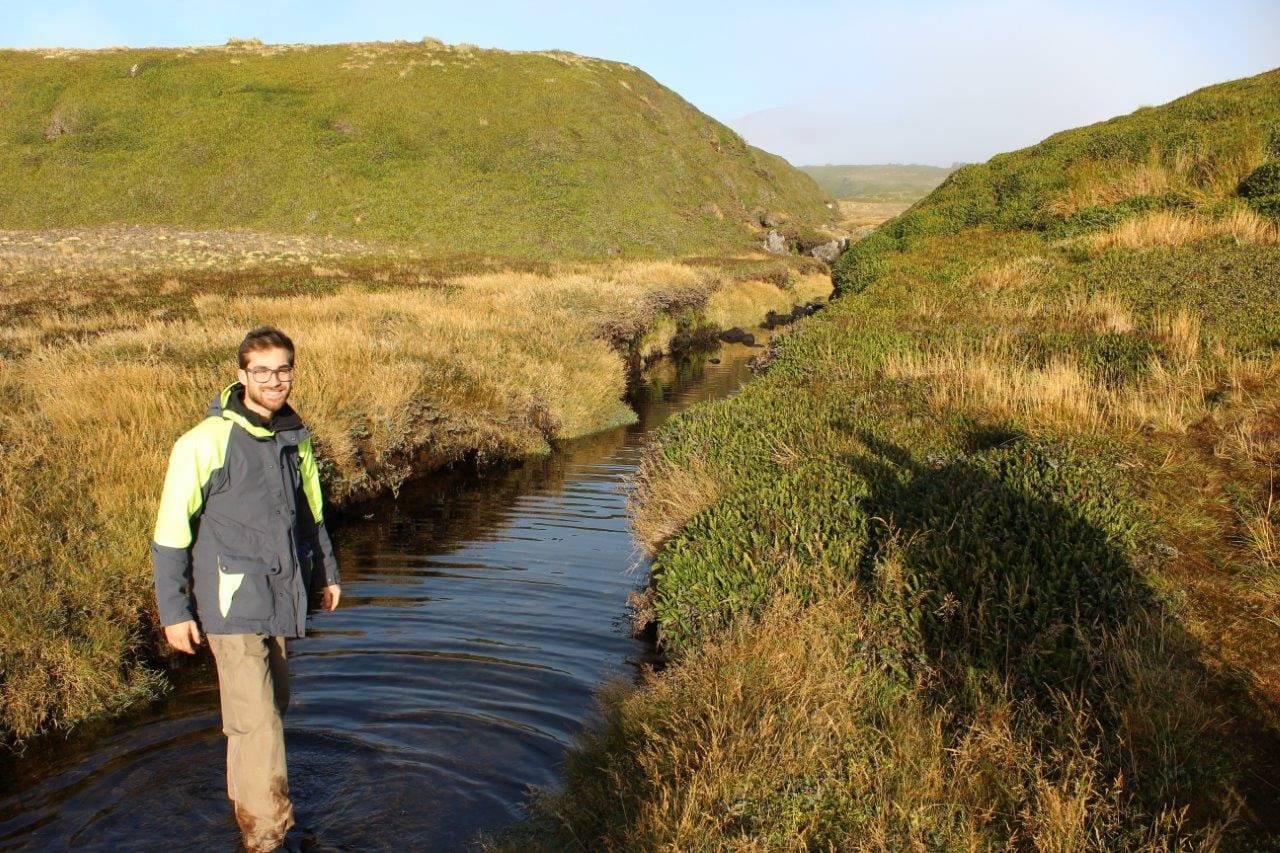
 Earth science, in general, has always been fascinating to me and since I was little, my desire was to discover and learn new things related to our oceans.
Earth science, in general, has always been fascinating to me and since I was little, my desire was to discover and learn new things related to our oceans.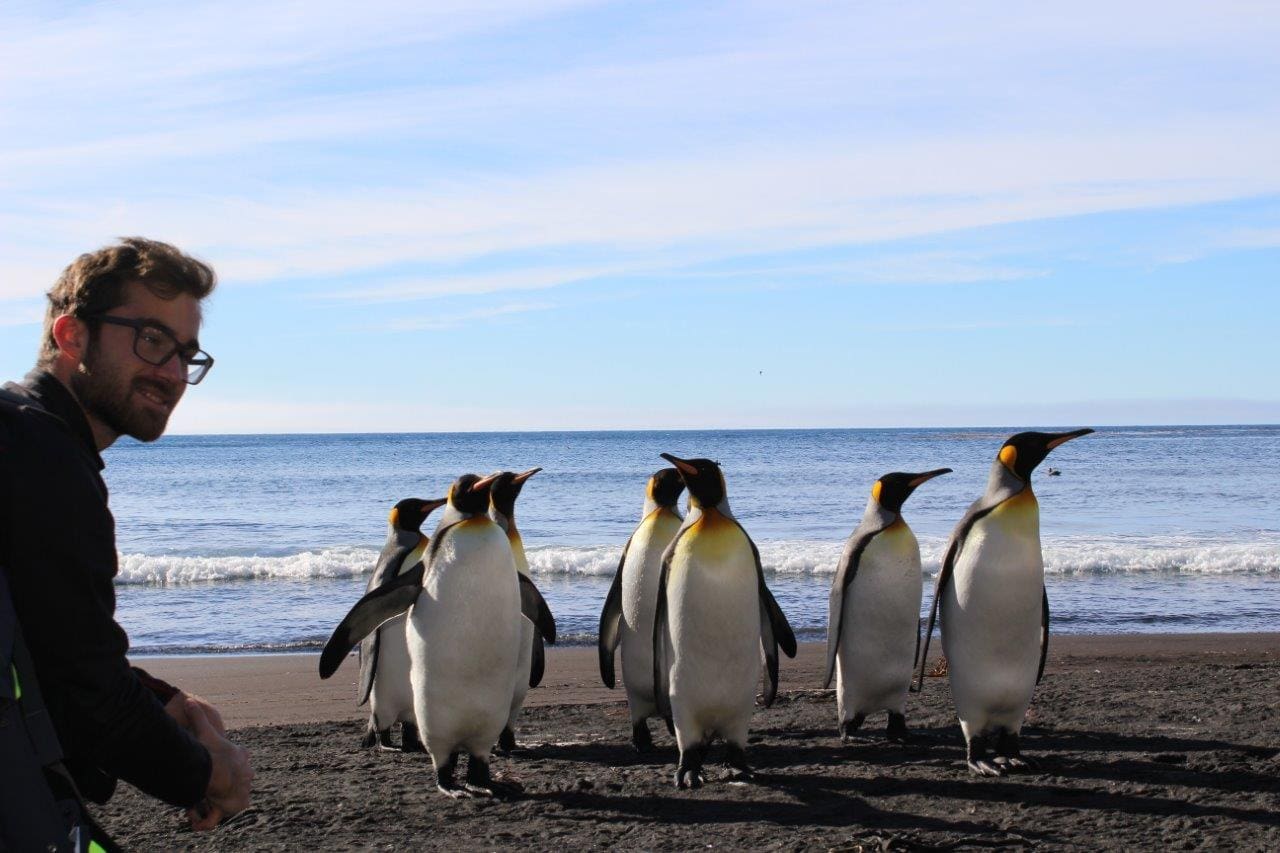
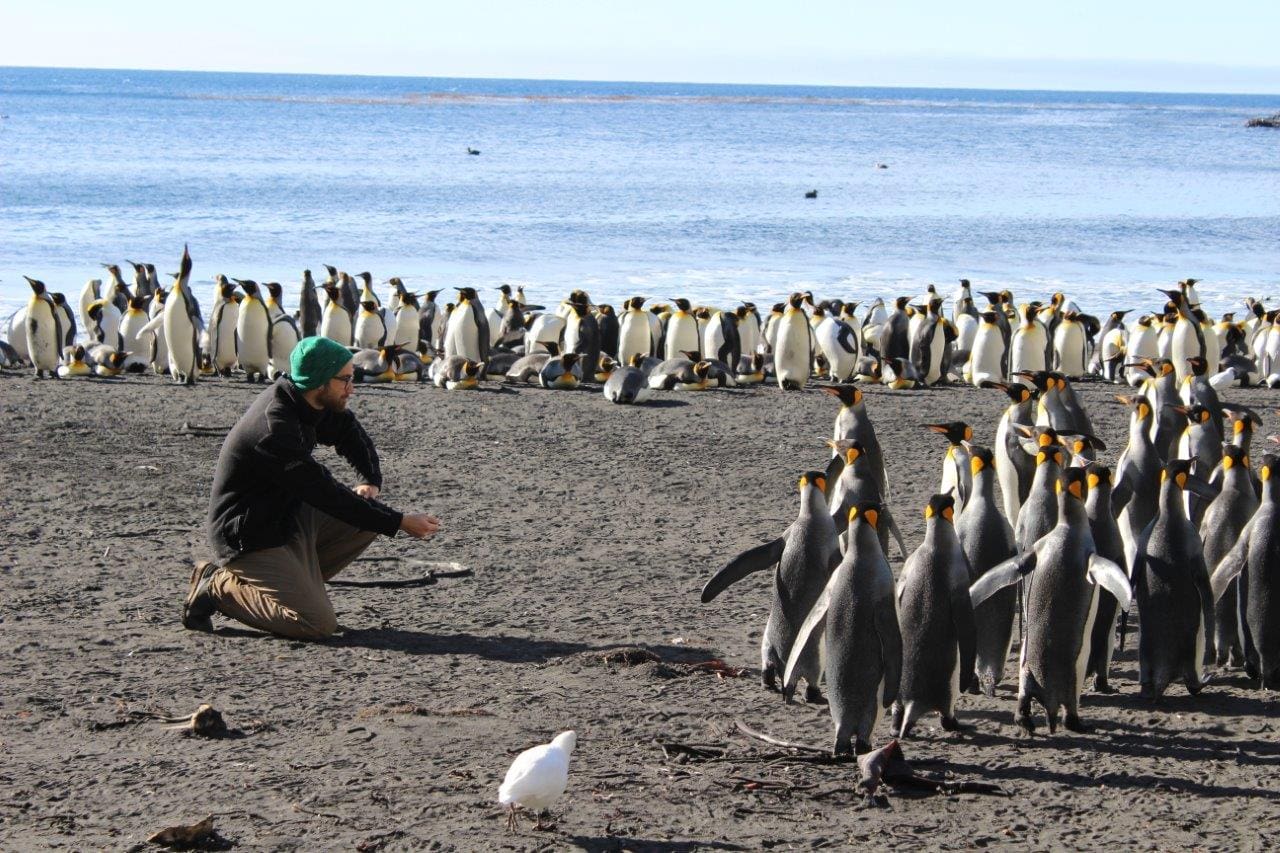
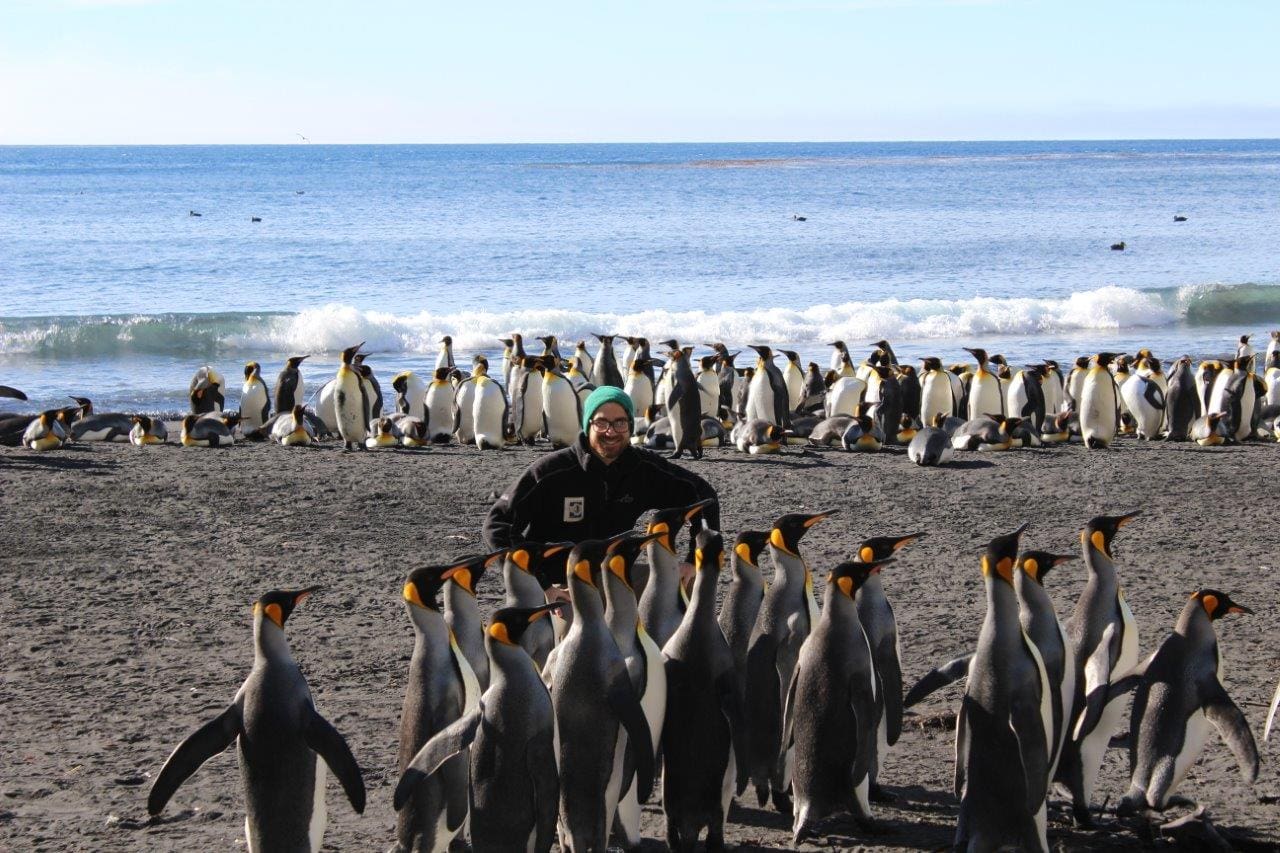 Thanks to oceanography, I can attend fantastic expeditions anywhere in the world, exploring from the icy polar seas to the warmer waters of the equator, spending weeks or even months on board of research vessels. During these trips, I always meet colleagues and extraordinary scientists that share the same interests and passions of mine, even if they are from different fields. Furthermore, coming to South Africa, I joined two great scientific communities: one is the
Thanks to oceanography, I can attend fantastic expeditions anywhere in the world, exploring from the icy polar seas to the warmer waters of the equator, spending weeks or even months on board of research vessels. During these trips, I always meet colleagues and extraordinary scientists that share the same interests and passions of mine, even if they are from different fields. Furthermore, coming to South Africa, I joined two great scientific communities: one is the 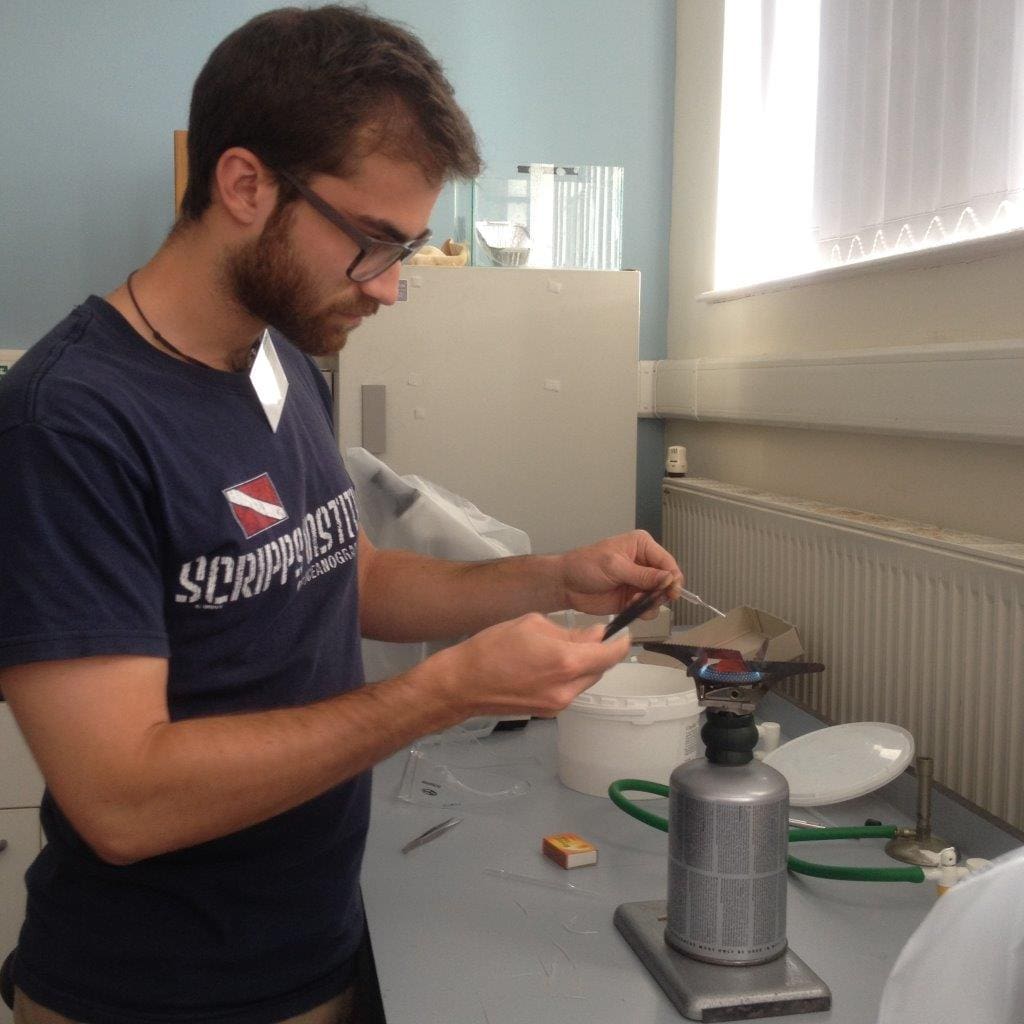
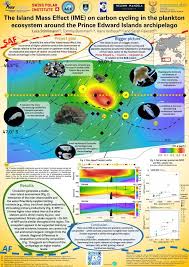 This is a great career that stimulates you at any moment of your life, and if you are curious, motivated, and resourceful, well… this job is waiting for you.
This is a great career that stimulates you at any moment of your life, and if you are curious, motivated, and resourceful, well… this job is waiting for you.




